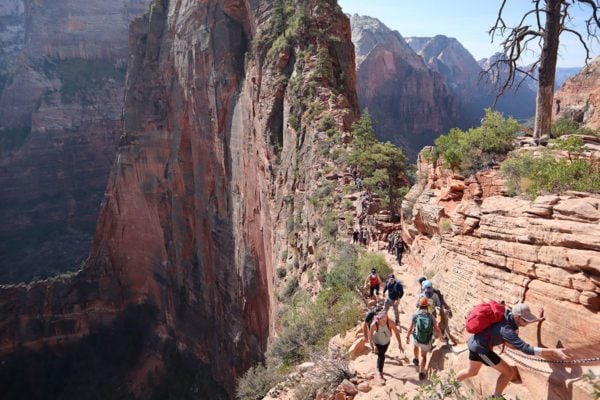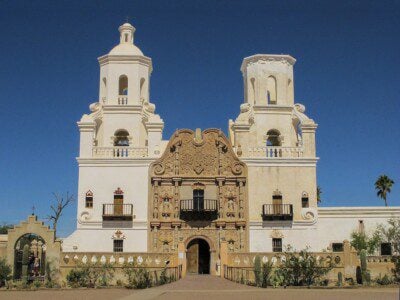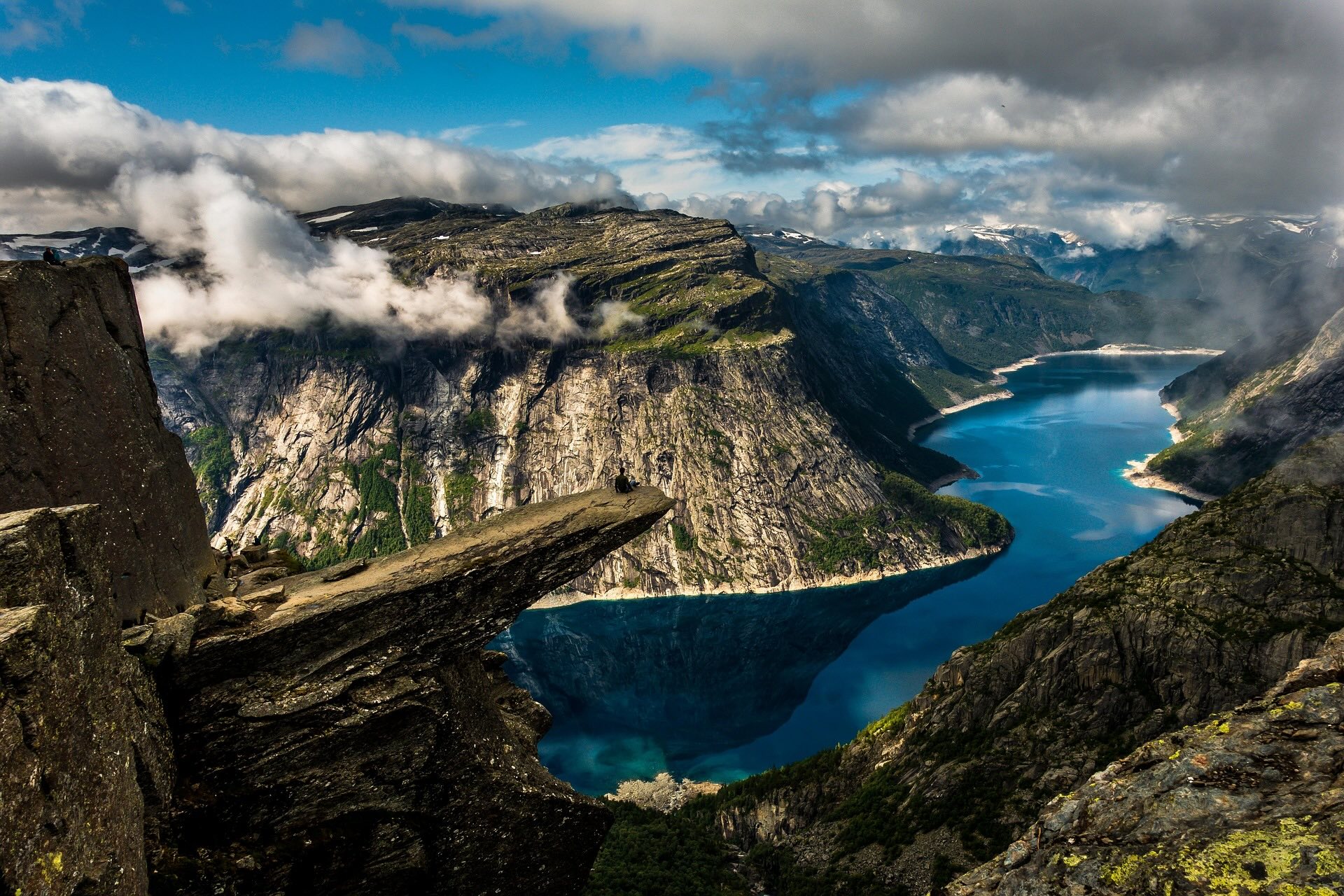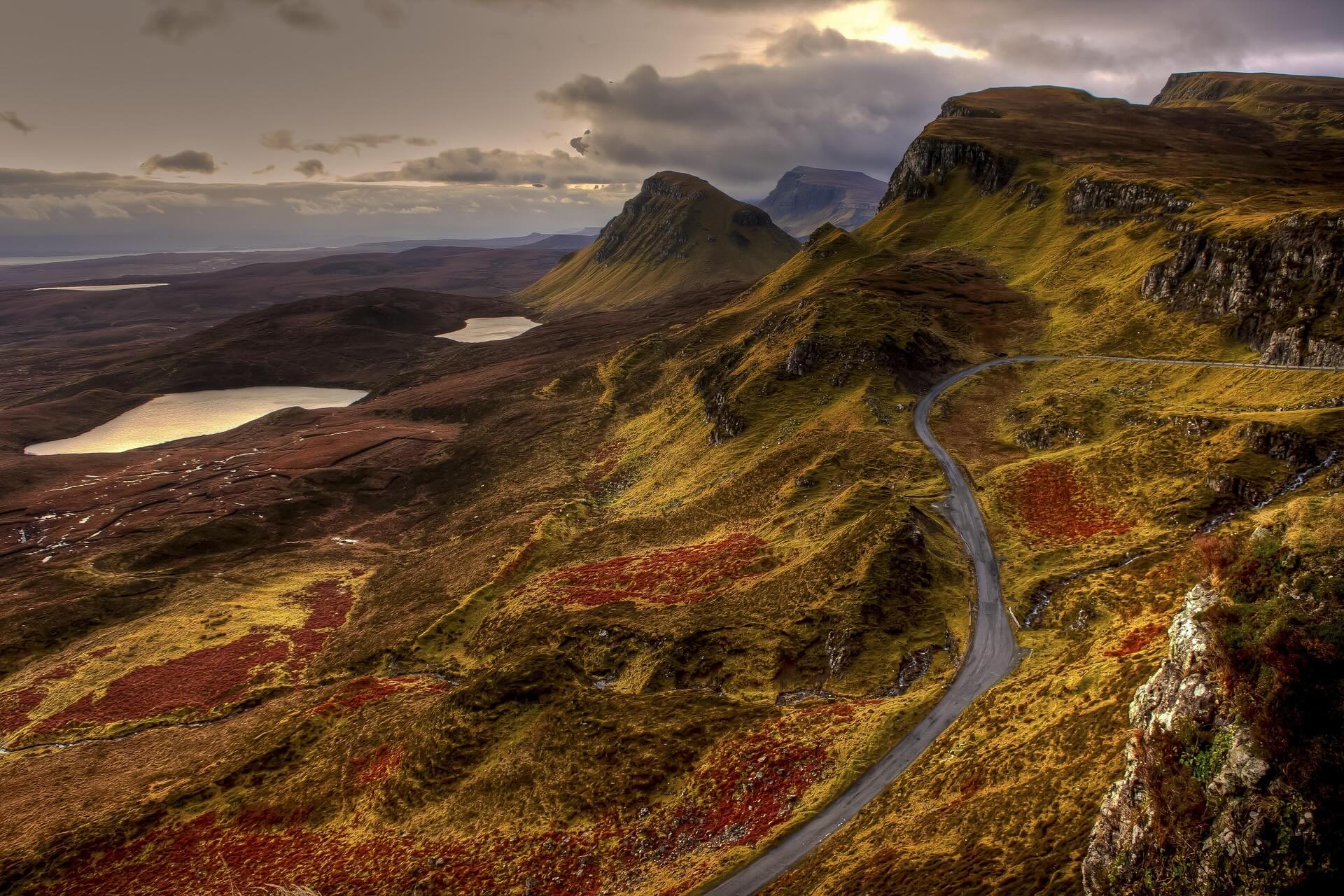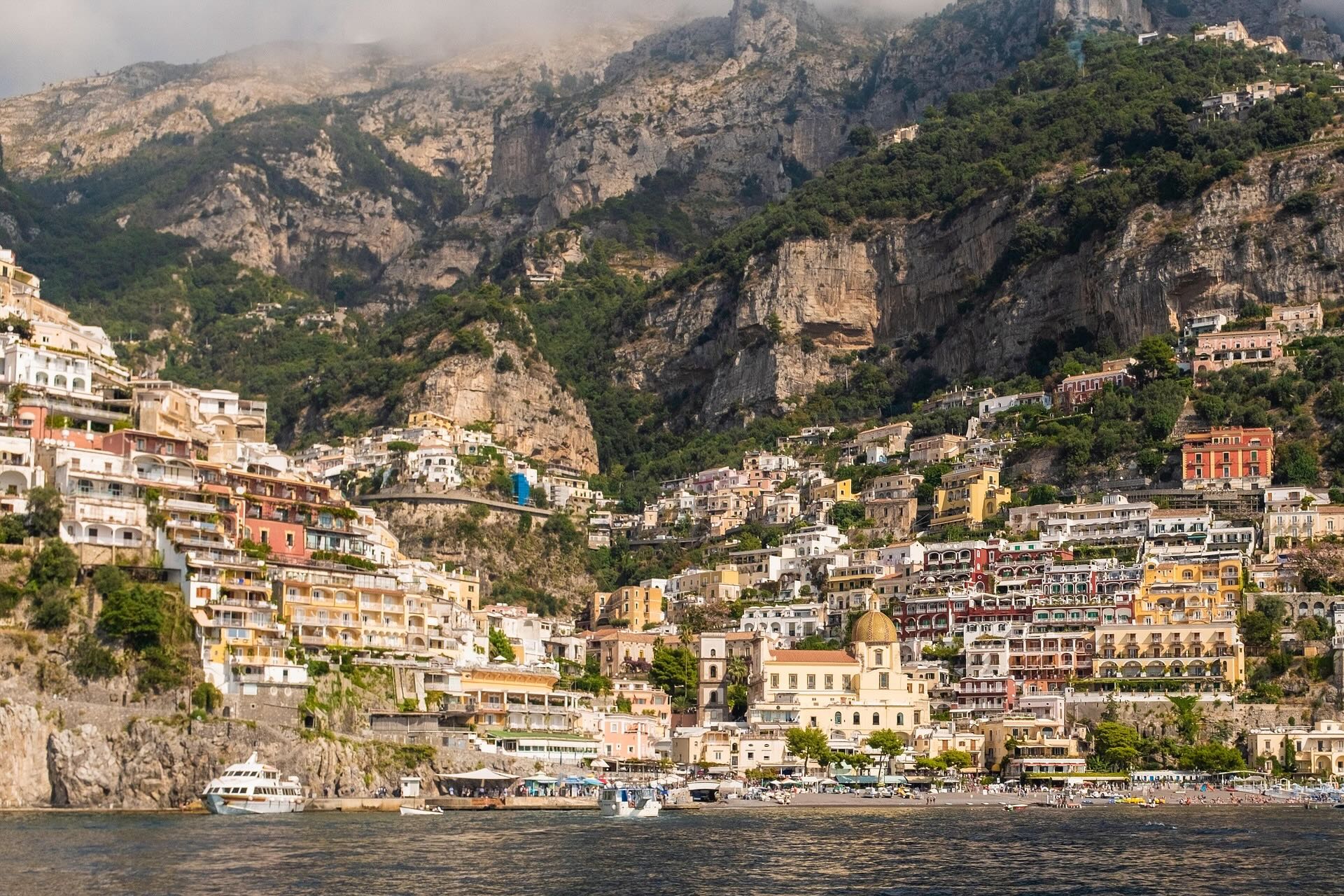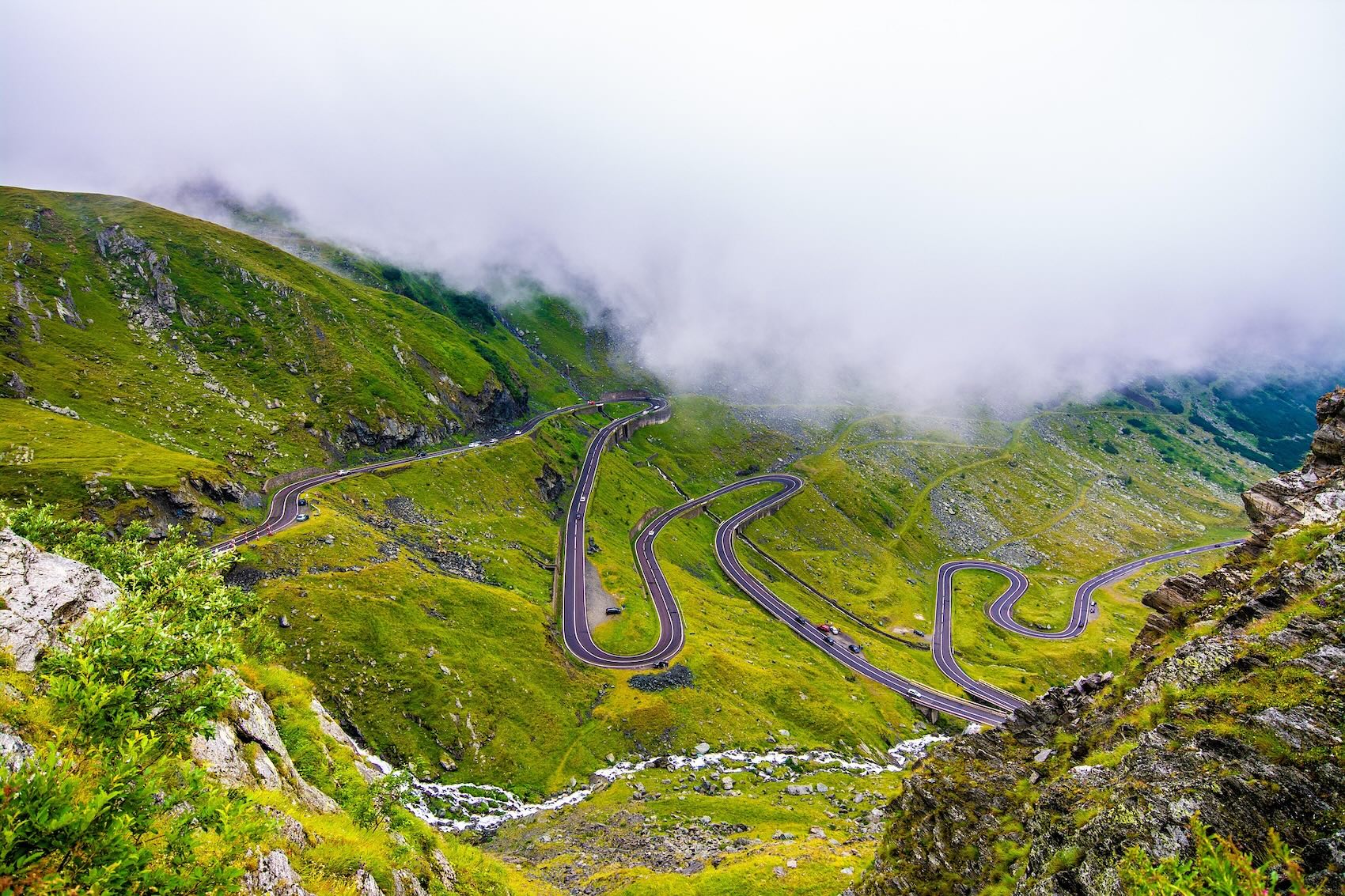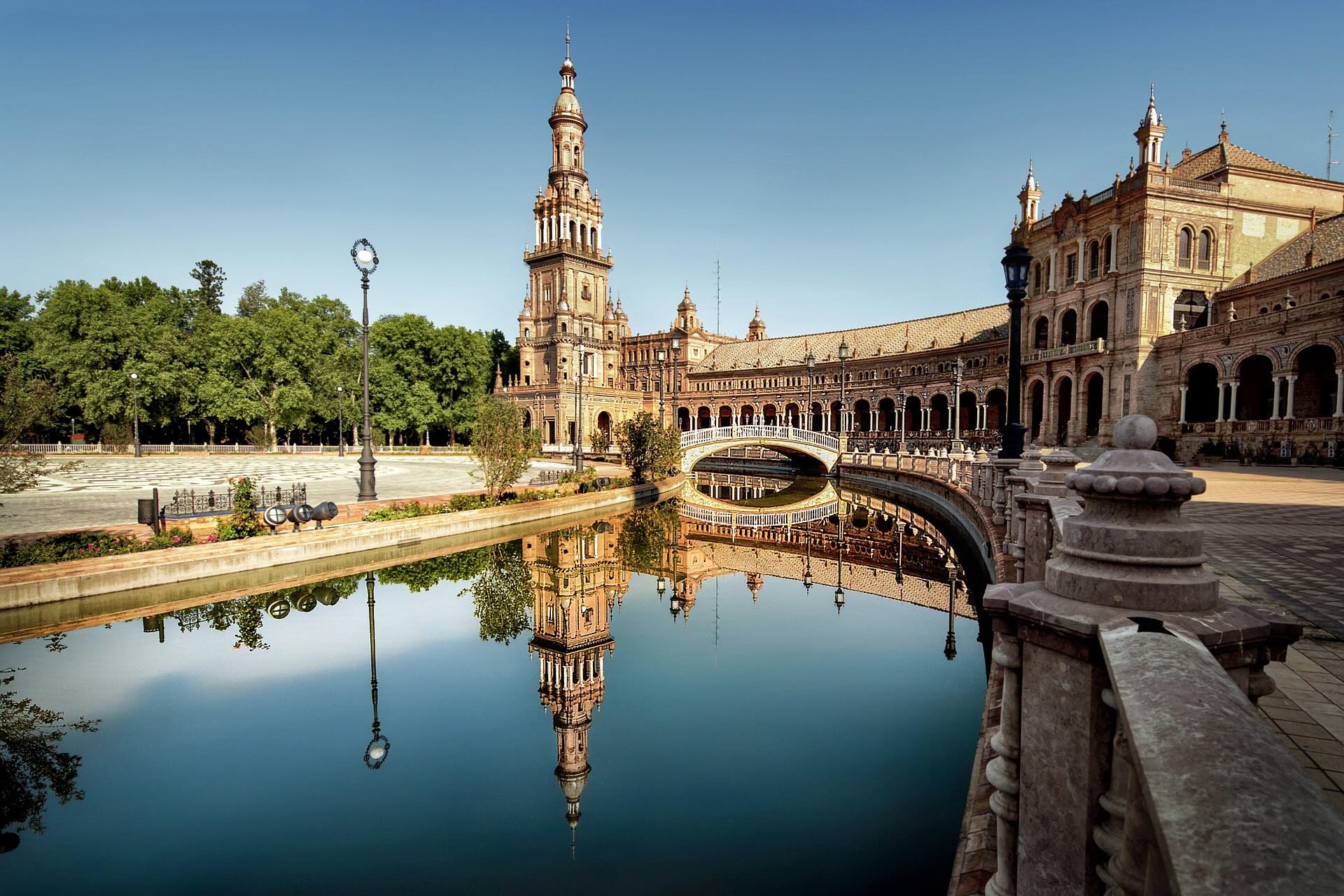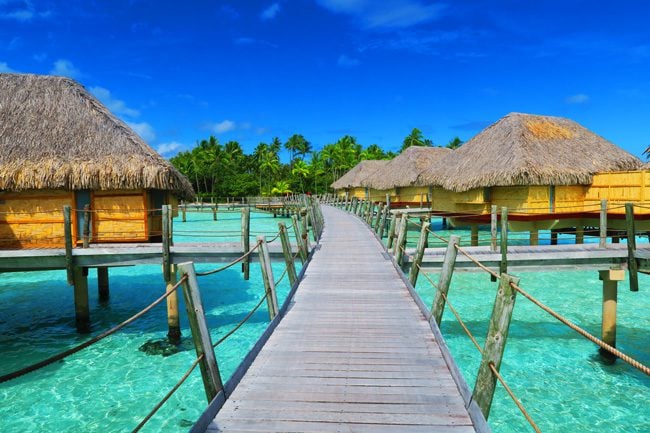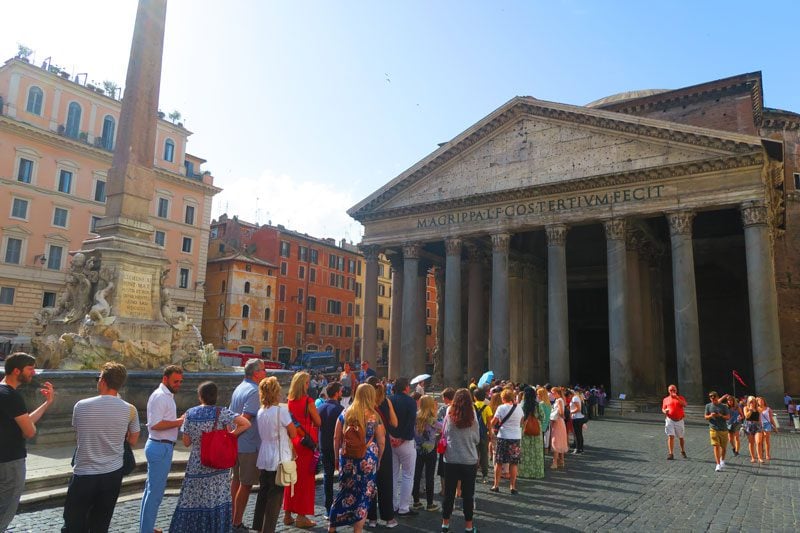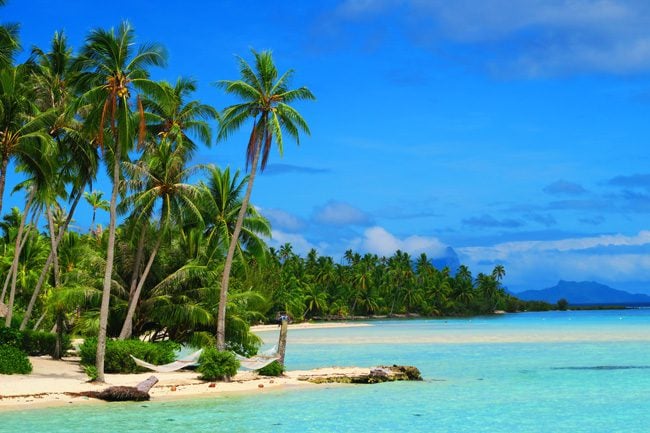Zion National Park Travel Guide
Things to See and Do in Zion National Park
This section of the Zion National Park travel guide will highlight Zion’s main highlights. I recommend following along using this companion map.
To see how to best divide your time in Zion, check out these Zion national park itineraries (one day, two days, three days). For specific hiking information, check out this guide to the best hikes in Zion. Here’s a rundown of the top 10 things to see and do in Zion for a quick read.
Springdale
Springdale is the main gateway to Zion National Park, a small town whose sole purpose is to cater to visitors and staff. Free park shuttles connect the town with the visitor center. The scenery on the drive to Zion Canyon becomes extra impressive as you enter Springdale, with the canyon’s signature jagged reddish sandstone cliffs and their visible geological lines getting ever so close.
The Visitor Center
The national park’s visitor center sits just behind the Zion Canyon Village. You’ll find restaurants, cafes, a small supermarket, and a few outfits renting hiking gear, bicycles, and special gear for those hiking the Narrows (poles, waterproof boots, etc.). You’ll board the free shuttle heading up and down Zion Canyon at the visitor center. When the shuttle is not operating, you can drive your vehicle inside the canyon.
We’ll now explore highlights in and around Zion Canyon, starting from its very tip and then down to the visitor center.
Temple of Sinawava
Look for the interesting rock formation that rises like a needle at this last shuttle stop. This is the starting point for the Riverside Walk, an easy 2-mile (return) paved trail that follows the narrowing North Fork Virgin River. The path allows for a close-up view of the sandstone cliffs and opportunities to ditch the paved trail and walk along the sandy bank of the river. Keep your eyes peeled for deer, especially in the (chilly) morning hours. From the end of the trail, you’ll see hikers entering the Narrows and the Mountain of Mystery in the background.
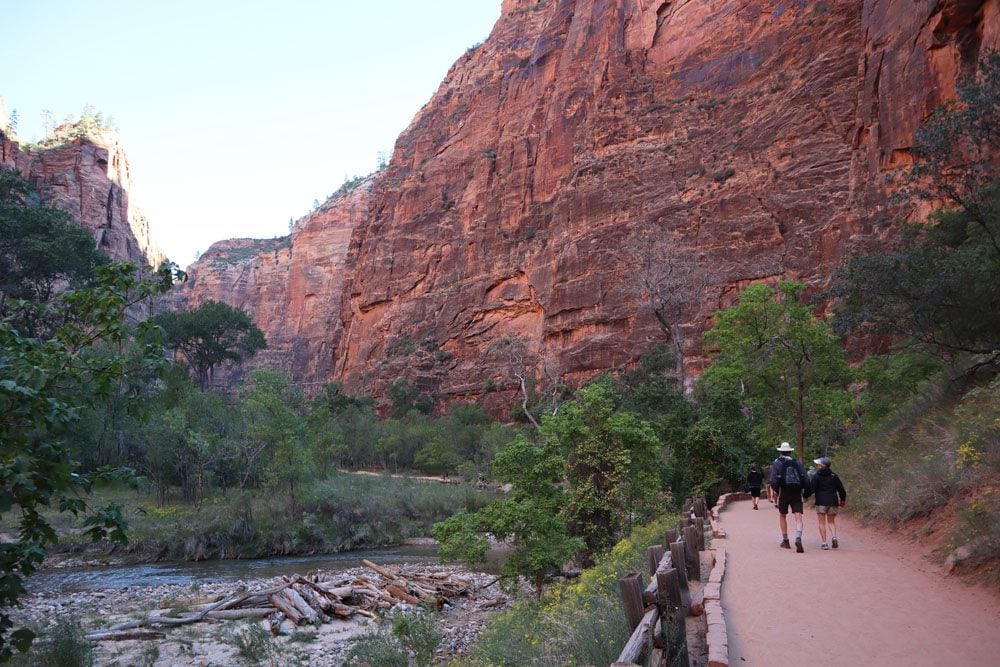
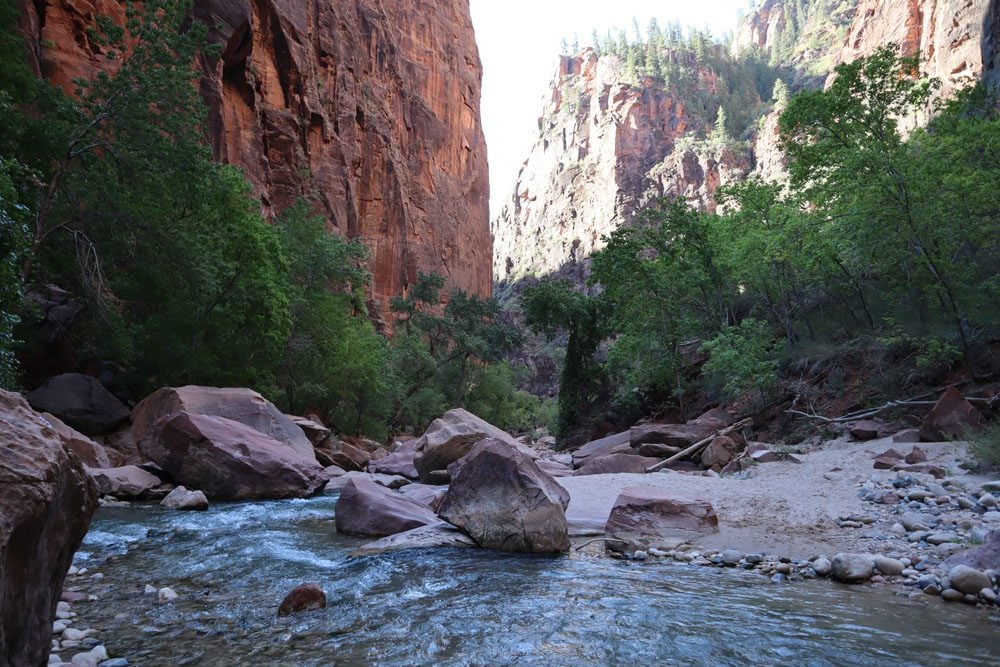
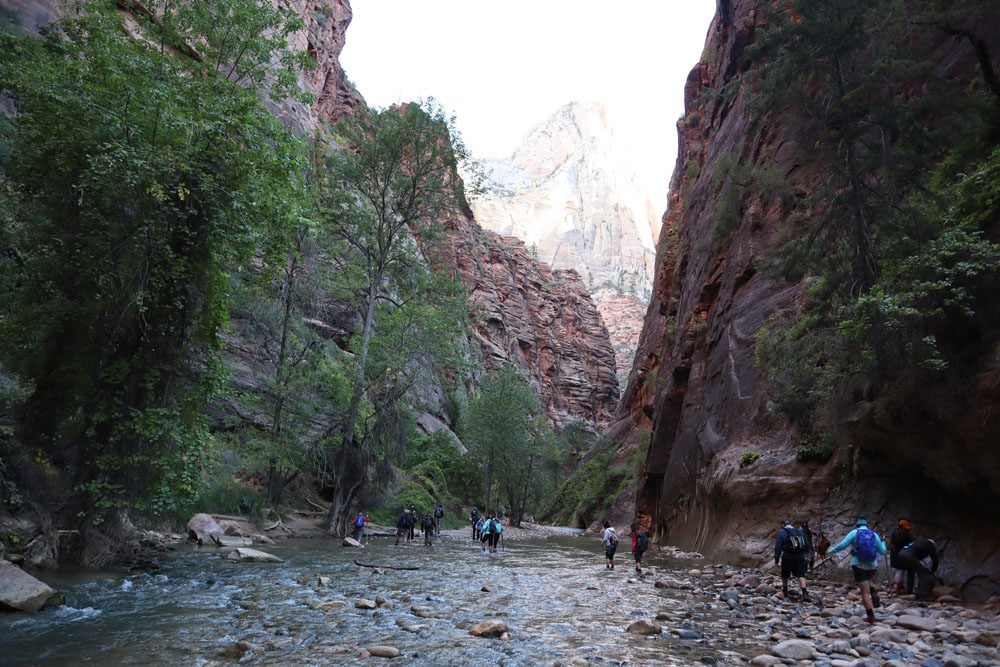
The Narrows
The Riverside Walk ends at the beginning of the Narrows, one of the most popular hikes in Zion that is really more of an adventure than a hike. The Narrows form the narrowest section of Zion Canyon, a claustrophobic gorge with 1000-foot walls. The most popular way to hike the Narrows is from the end of the Riverside Walk (bottom-up), but another option is from Chamberlain’s Ranch (top-down, permit required). Hiking the Narrows requires renting special gear and a lot of stamina. See this page for more information.
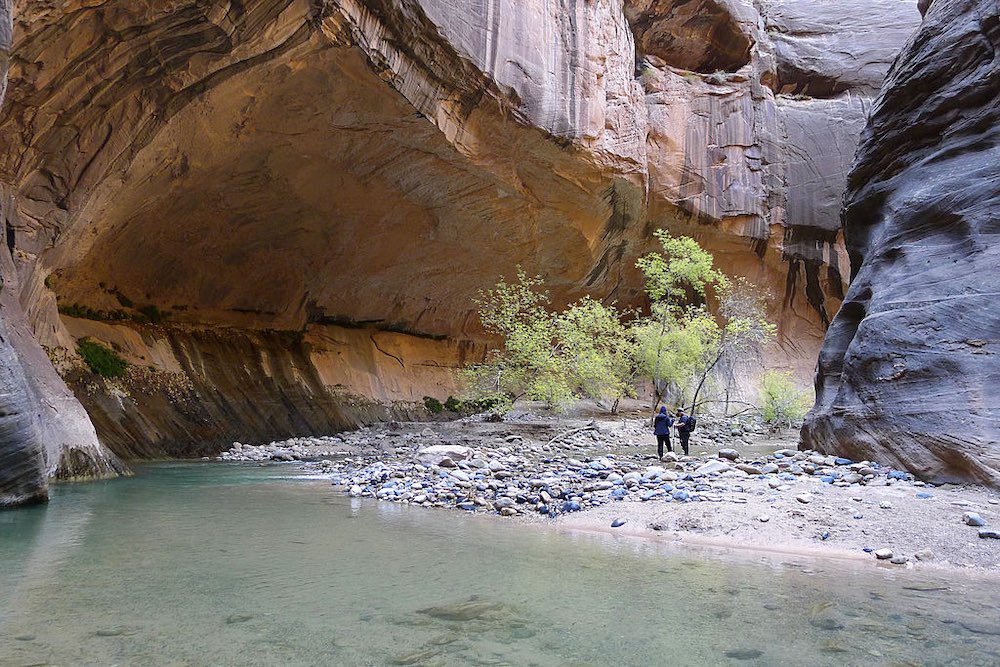
Big Bend & Weeping Rock
This is a beautiful section of Zion Canyon where the river makes a semi-circle bend. Big Bend is best appreciated high above the canyon floor, from Scout Lookout or Angel’s Landing. You can see the Organ, the Great White Throne, and Angel’s Landing in a single frame from this shuttle stop. As you check out these pinnacles, be on the lookout for condors, often spotted patrolling the skies.
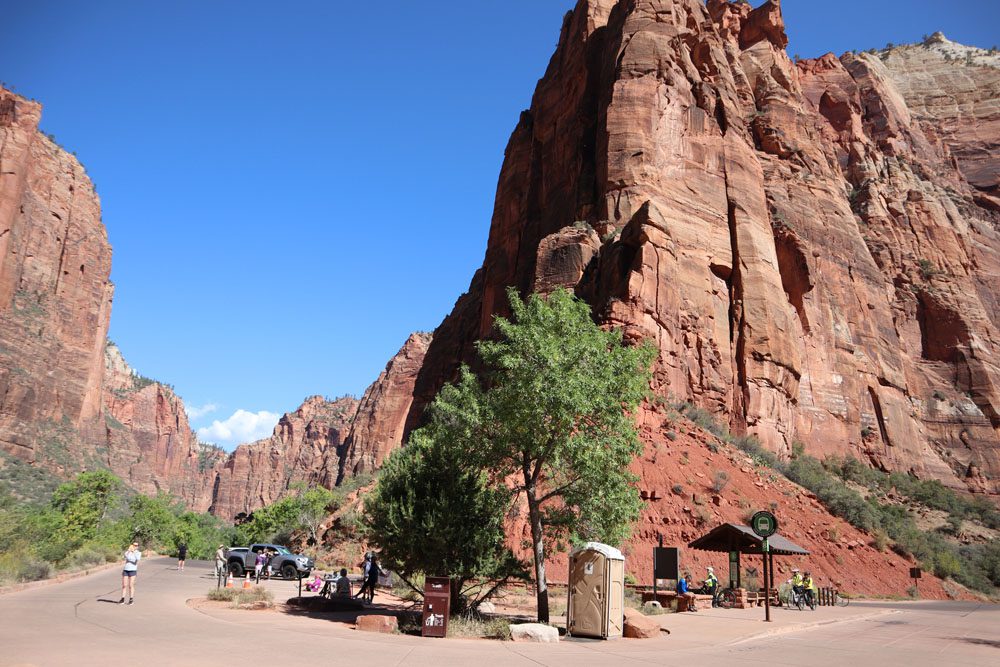
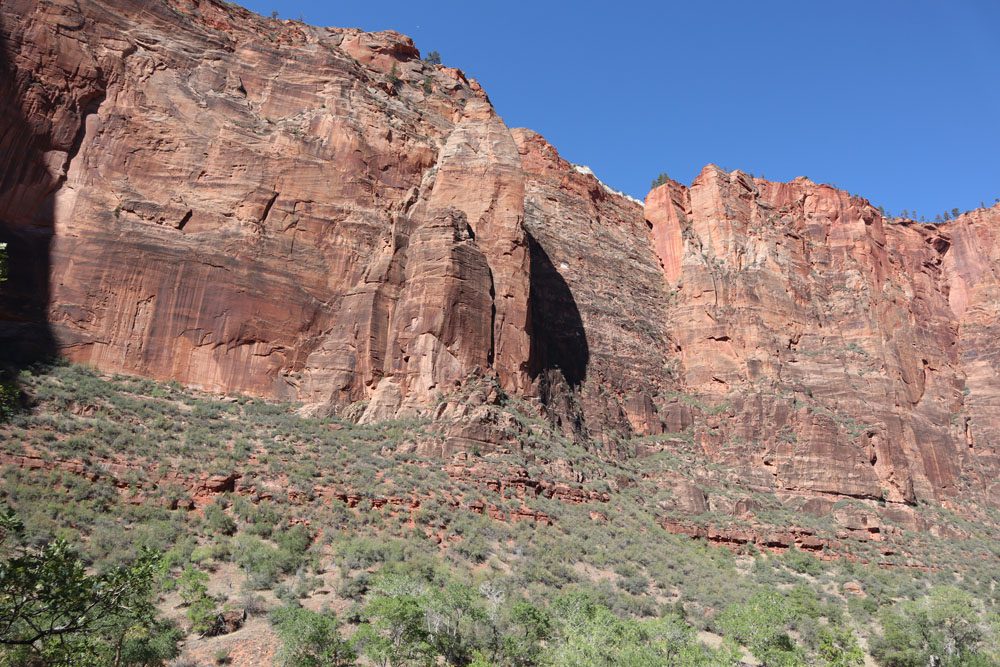
The shuttle’s next stop will be at Weeping Rock if the trail is open. You can also walk along the bending river from the Big Bend stop and make the short hike to this unique rock, a moist depression in the soft canyon wall. A more impressive “sister” is on the Emerald Pools trail.
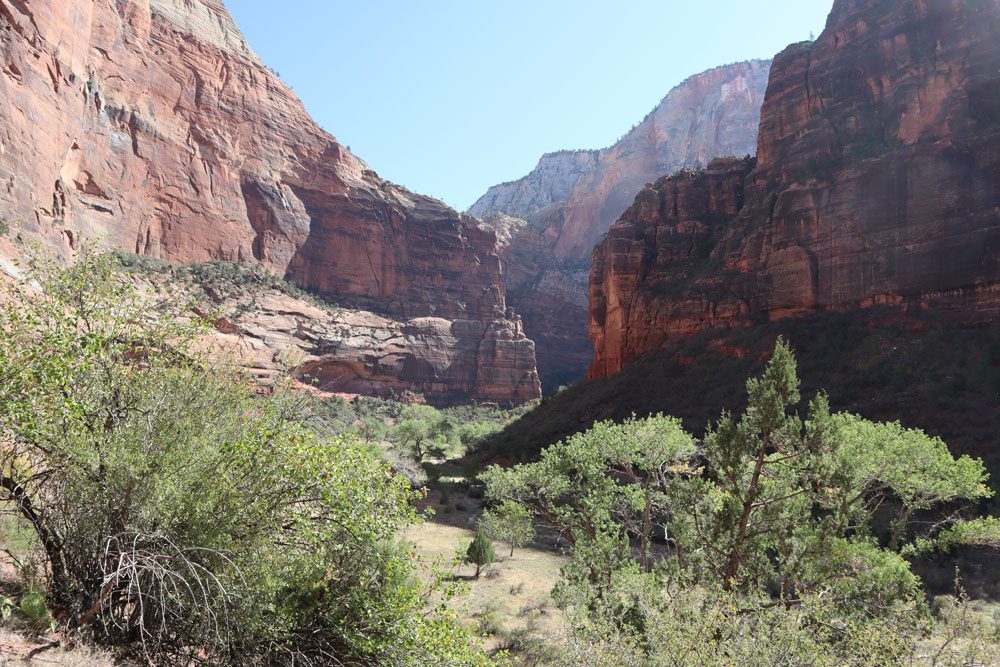
The Grotto
This is a busy shuttle stop as several hiking trails begin from here, plus a large picnic area with facilities. As for the views? They’re not bad in either direction, to say the least. The Grotto is the starting point for the challenging Angel’s Landing and West Rim trails, the Kayenta Trail that connects to the Emerald Pools Trail, and the easy Grotto Trail to Zion Lodge.
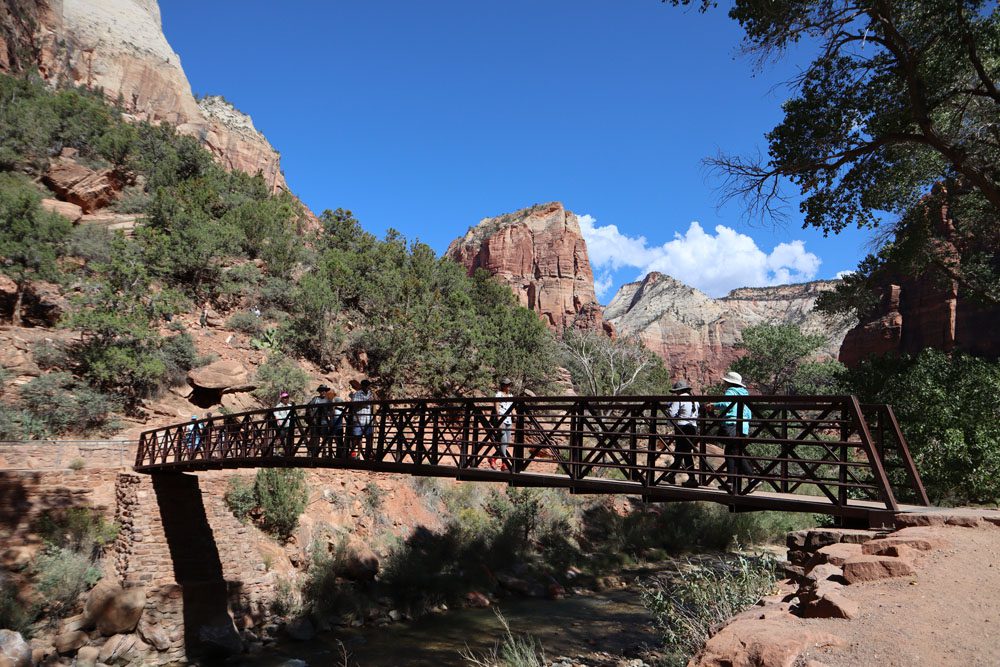
The Grotto Trail to Zion Lodge
This easy walk connects the Grotto and Zion Lodge shuttle stops. I really liked this walk because it was a more exciting alternative to taking the shuttle, and it only took about 20 minutes to complete. The trail is flat and runs parallel to the canyon road.
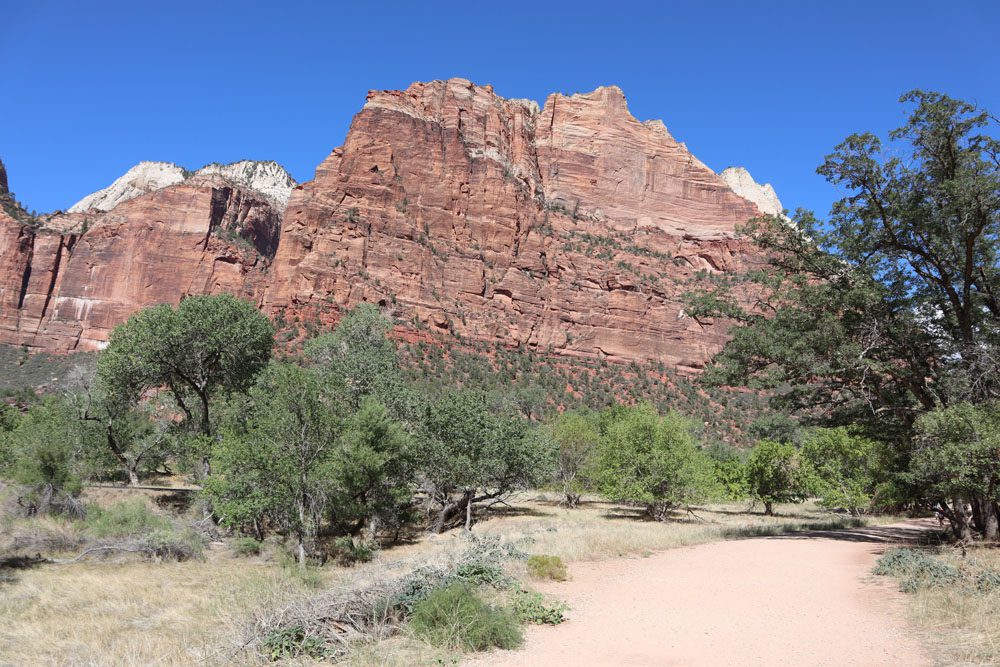
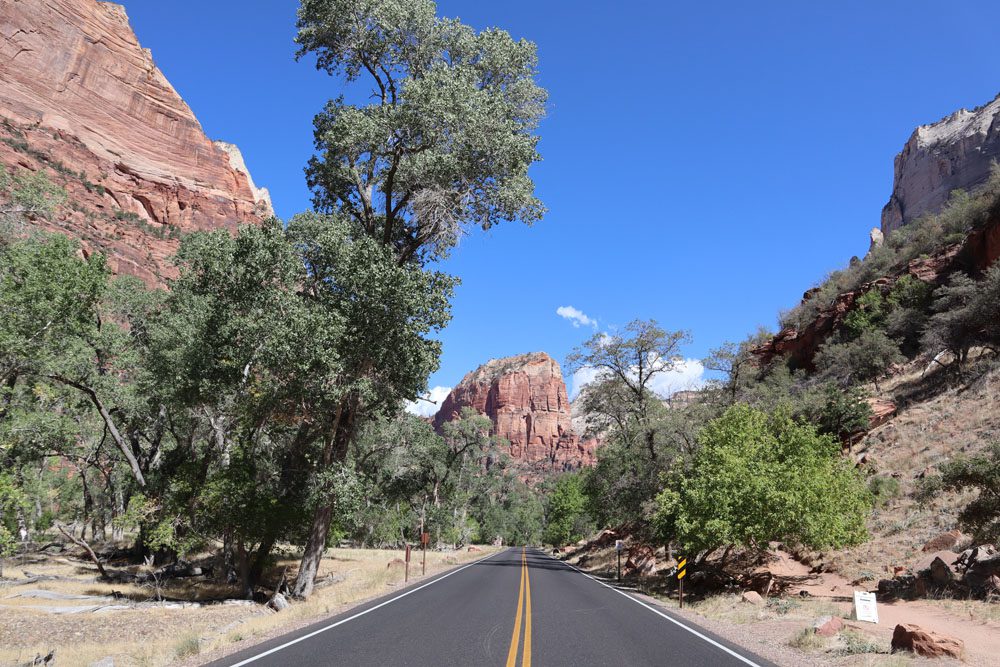
Angel’s Landing Hike
Angel’s Landing is Zion’s most popular and thrilling hike. The goal of this strenuous hike is to reach an impossibly scenic clifftop bearing a very fitting name. From there, unobstructed views of Zion Canyon are the reward. But it’s not only the views from Angel’s Landing that allure hikers to attempt this trail; it’s also about the mental and physical challenges hikers must overcome to reach this special spot. A detailed description of Angel’s Landing hike, along with essential planning tips, is available in the guide to the best hikes in Zion.
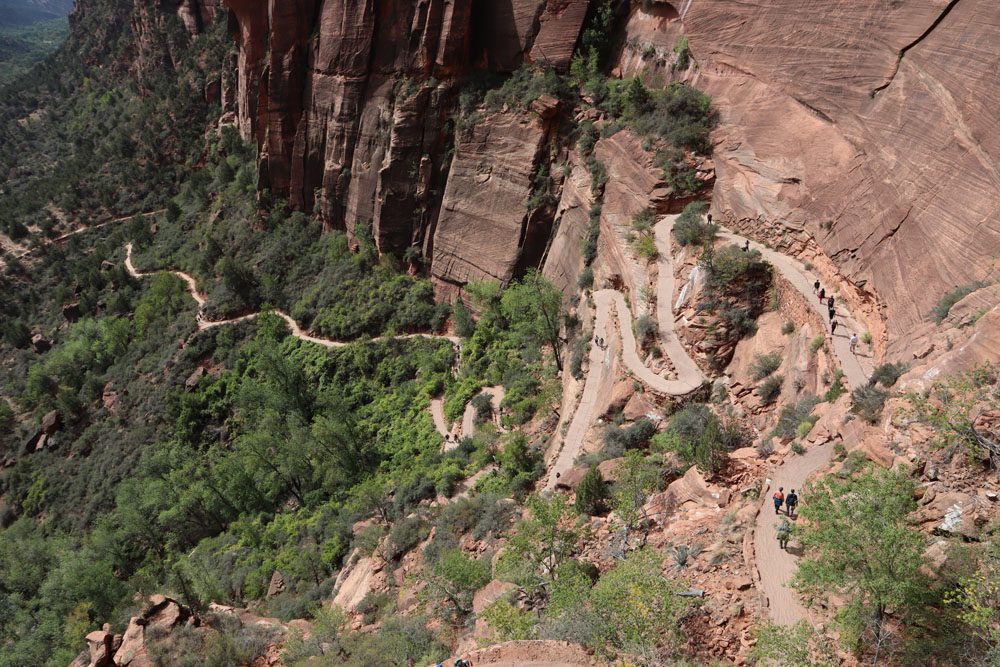
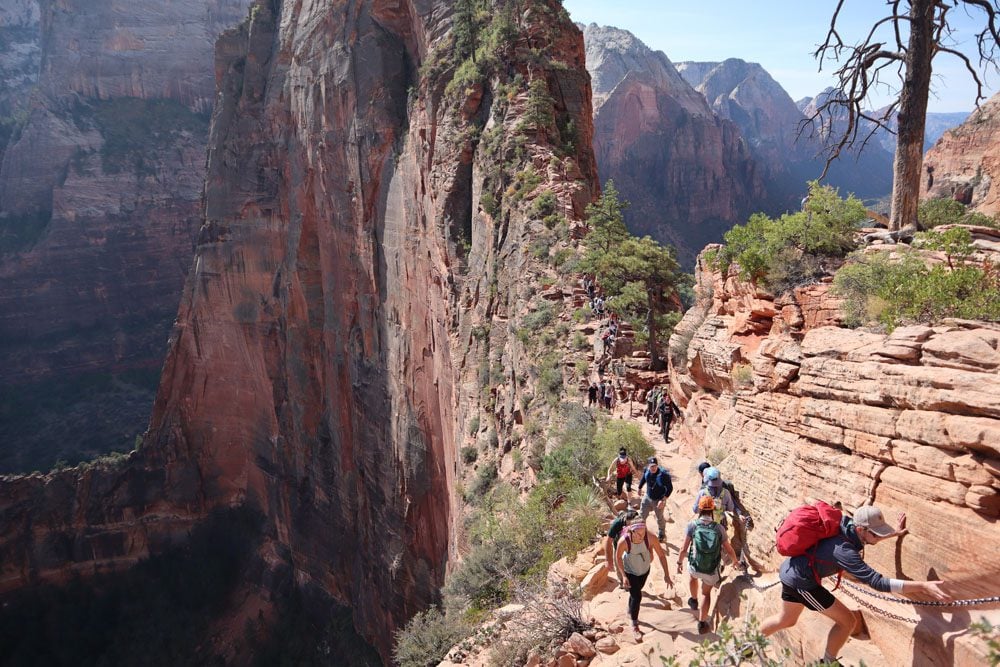
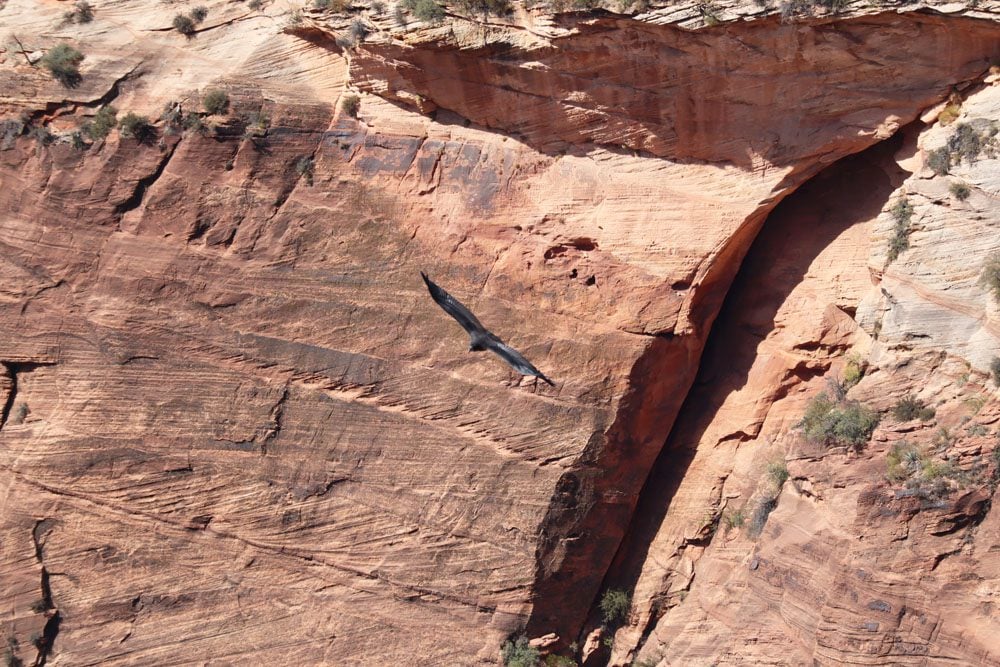
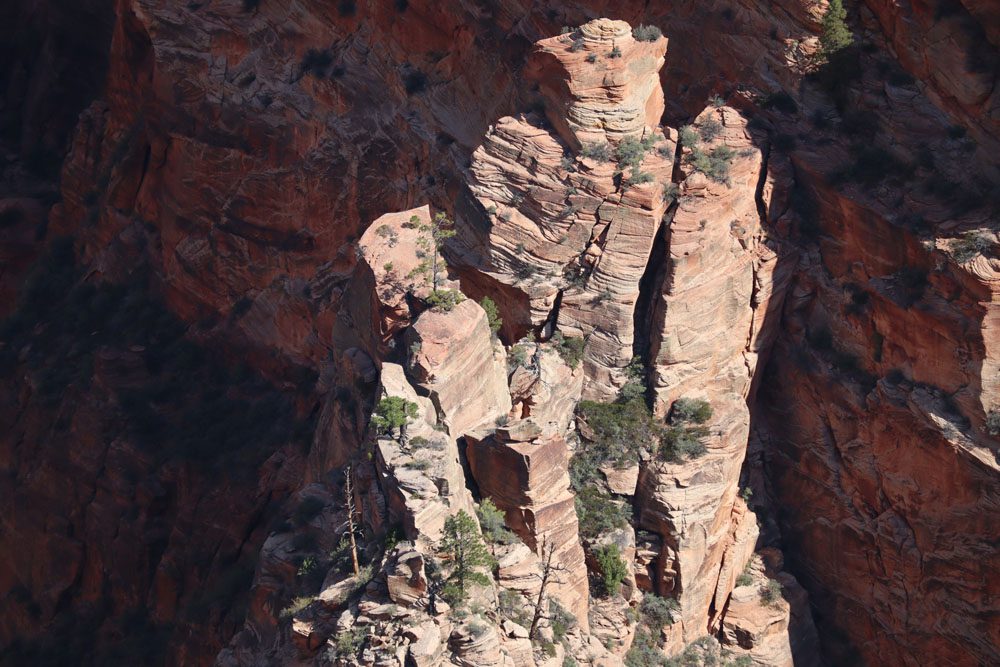
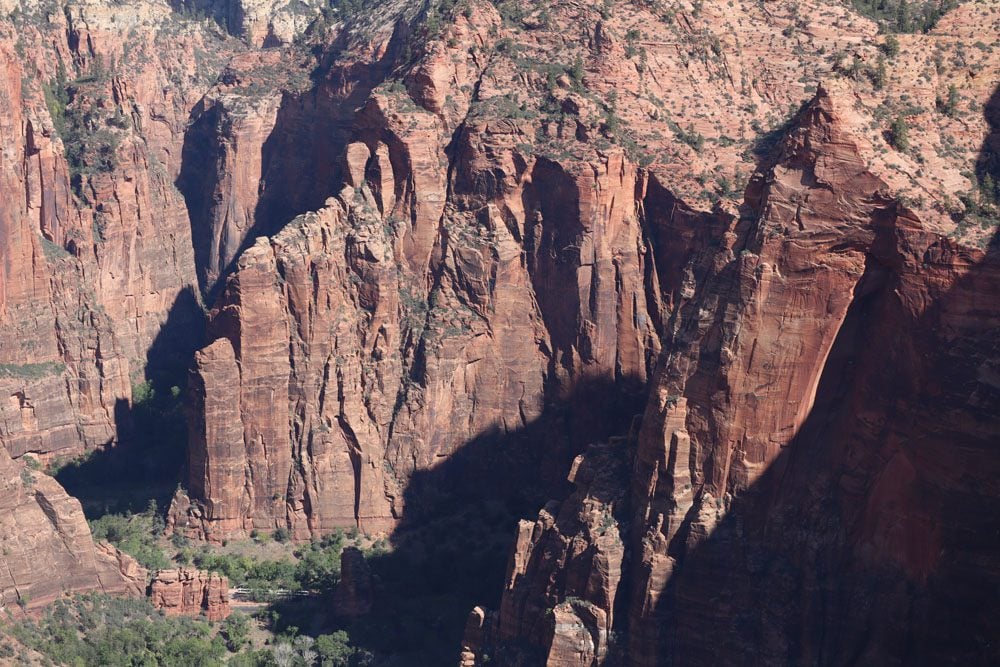
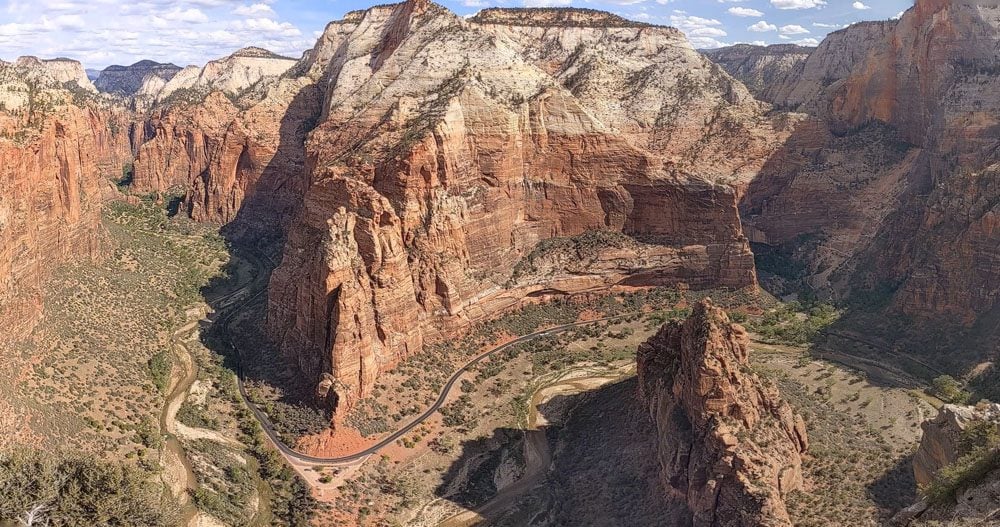
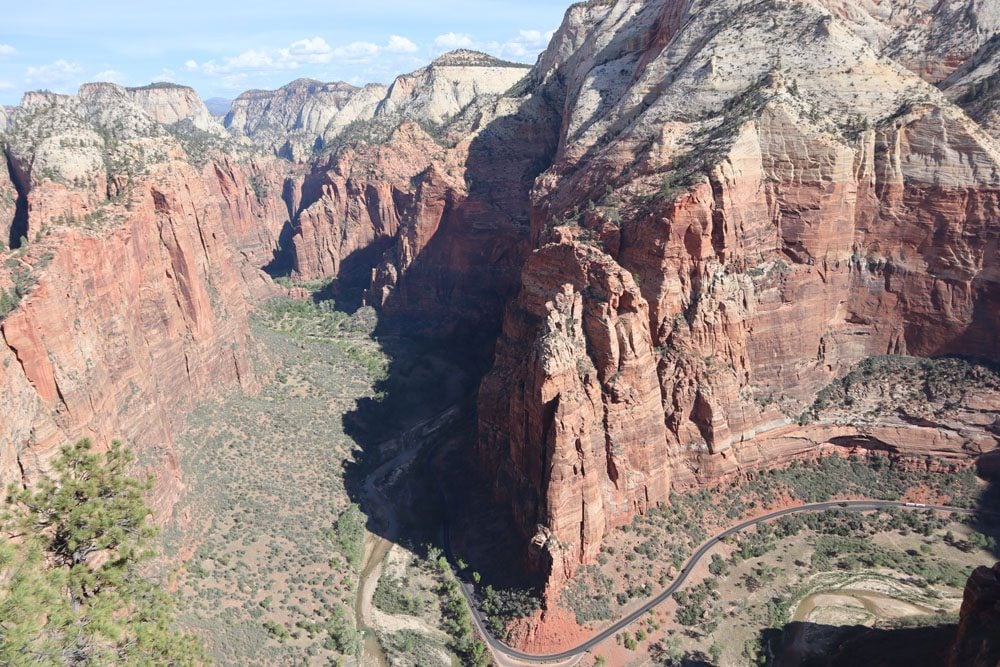
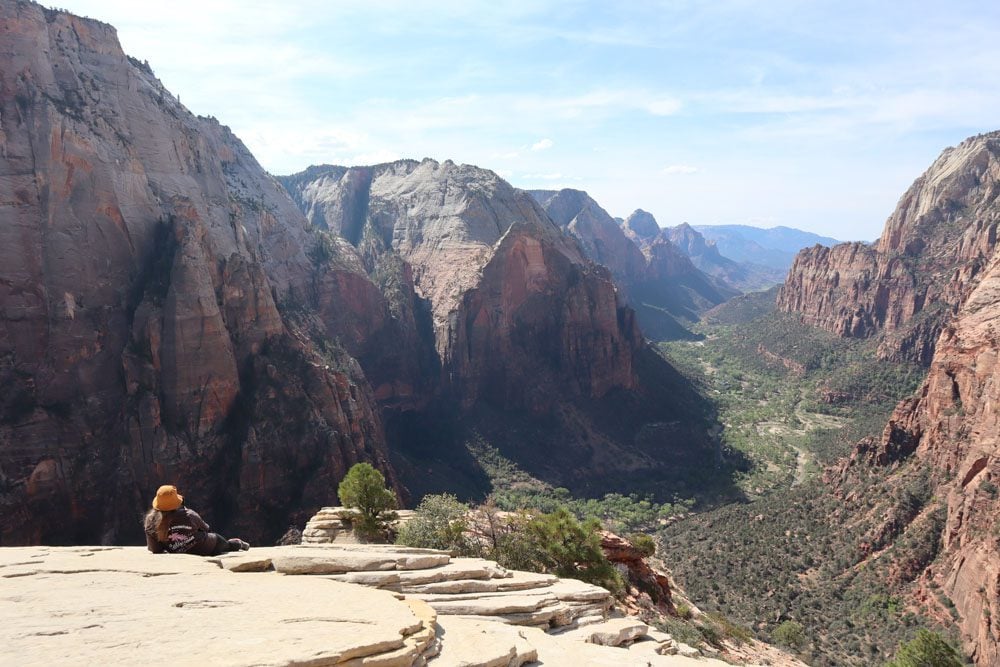
Check the park’s official website to see if a permit is required to hike to Angel’s Landing.
Zion Lodge
The Zion Lodge is the only accommodation inside the canyon, but it’s also a worthwhile shuttle stop for visitors, thanks to its large lawn and dining options. At the Red Rock Grill, enjoy lunch on the terrace with lovely views of the west rim. For a casual meal, grab something from the cafeteria (queues can be unbearable) and find a shaded spot on the lawn. During my visit to Zion, a small outdoor bar was also open. Together with the Grotto, the grassy lawn in front of Zion Lodge is a lovely picnic option. The small bridge across from the Zion Lodge is the starting point for the Emerald Pools Trail.
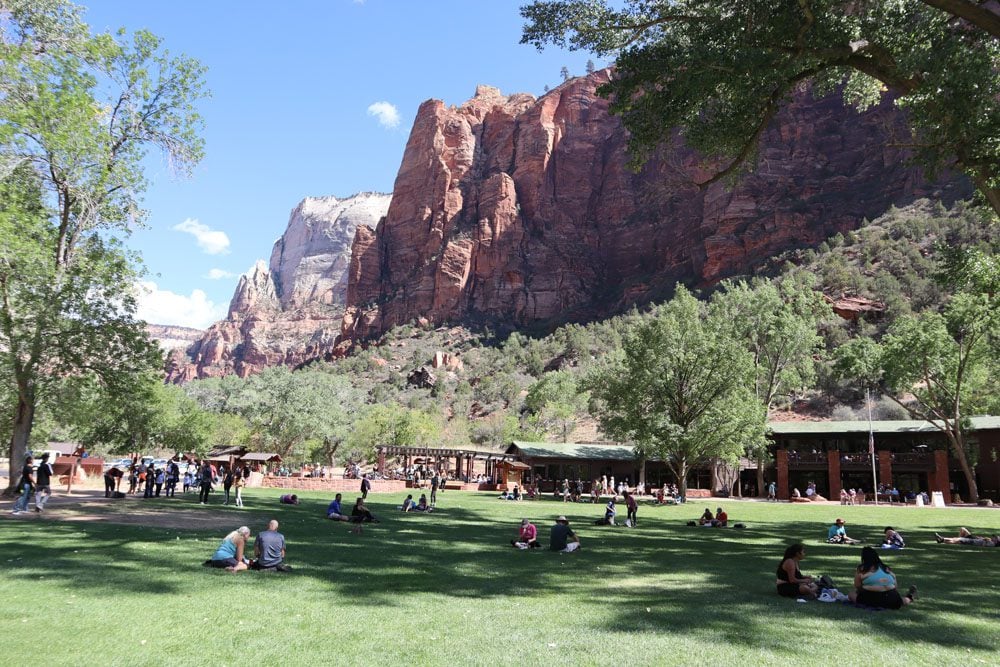
Emerald Pools Trail
The hike to the Emerald Pools is one of Zion’s top highlights. This moderate hike leads to three different pools, rewarding hikers on the way with close-up views of the reddish sandstone canyon walls. The most impressive are the lower and upper pools. Pick up the paved trail to Lower Emerald Pool after the small bridge across from the Zion Lodge and gently ascend parallel to the Virgin River until the trail turns inland.
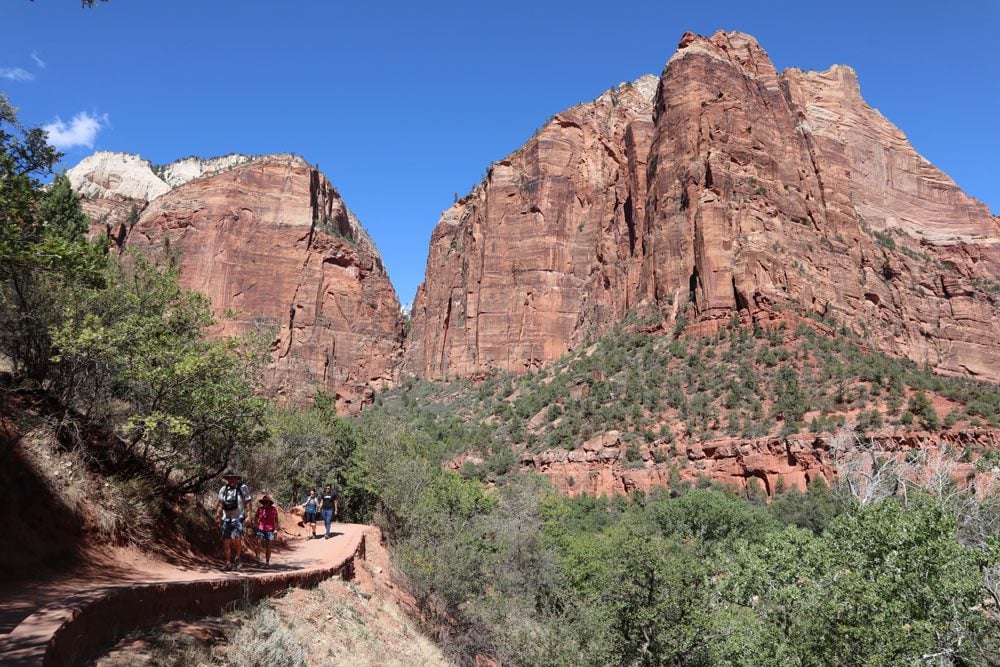
The Lower Emerald Pool is a true oasis, a picturesque waterfall cascading from the canyon wall to a small pool. During the dry months of the year, the waterfall turns into a trickle, but it still flows constantly and makes for a pretty scene. A cavity in the canyon wall takes hikers directly behind the cascade en route to the middle pool, which did not take my breath away and was a bit too crowded.
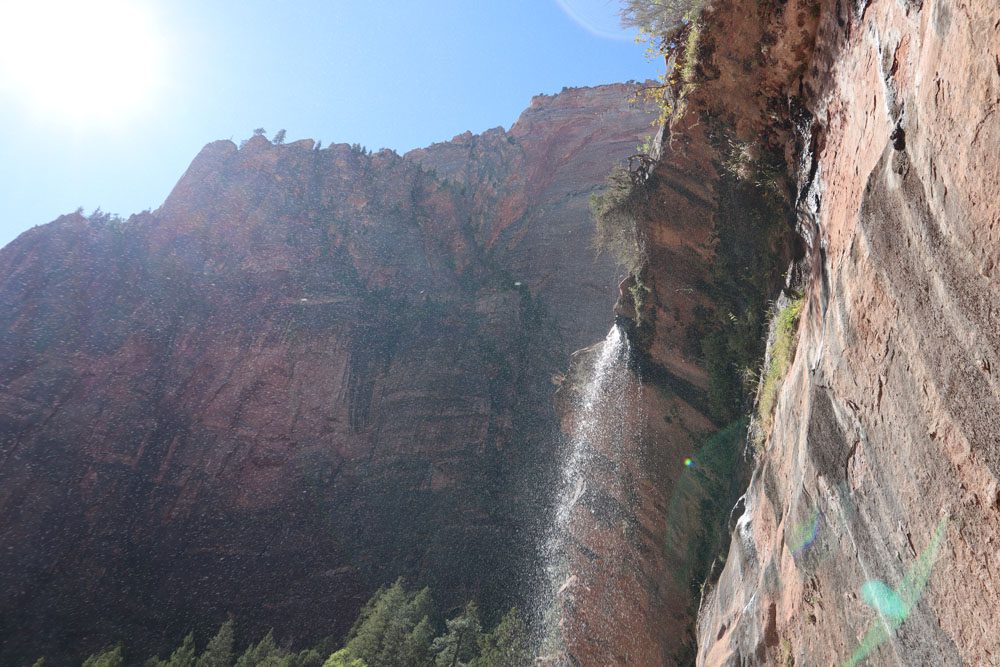
The more strenuous section of the hike is the final leg to the upper pool. You’ll pause many times on this stretch to catch your break and enjoy the views of the east rim just behind you. The Upper Emerald Pool is a magnificent secluded desert oasis. The pool reflects its surroundings like a perfectly polished mirror. Wow.
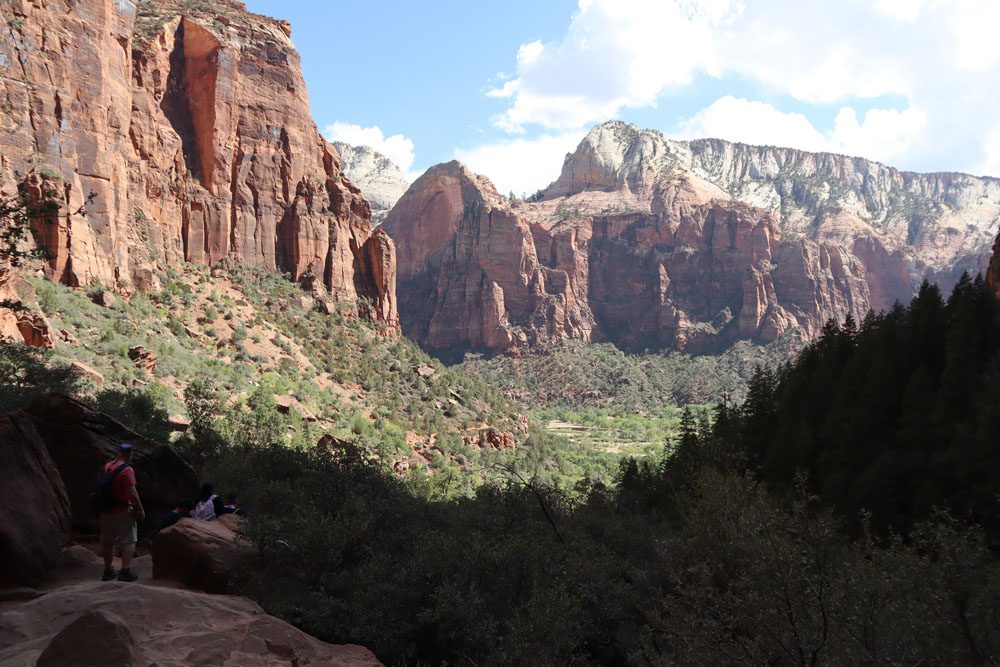
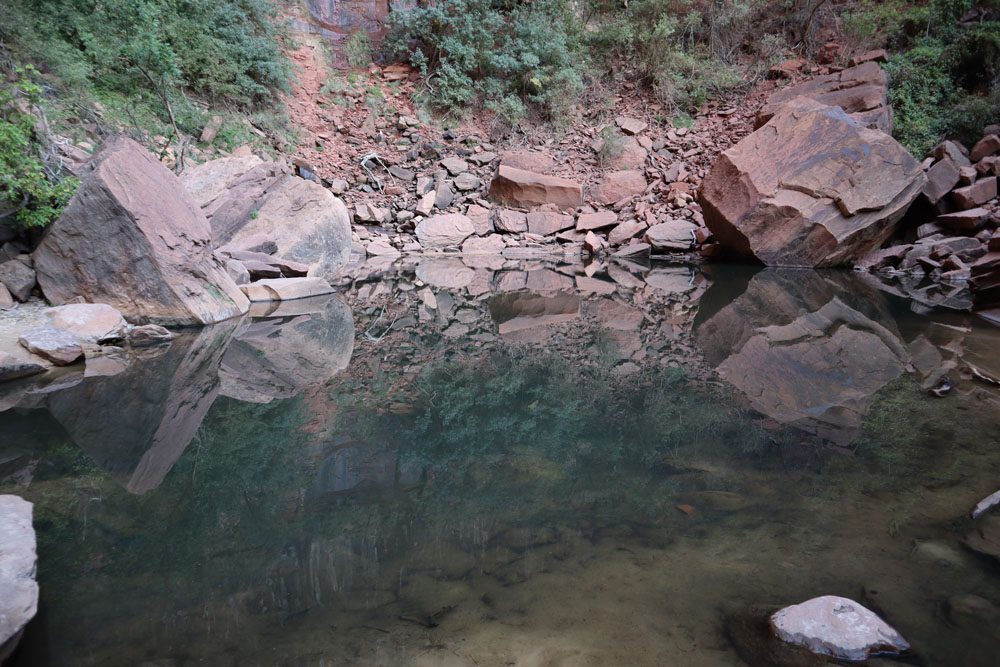
Court of the Patriarchs
This shuttle stop offers access to the prettiest viewpoint on the Zion Canyon floor. Named for three towering figures from the Old Testament, sandstone cliffs called Abraham, Isaac, and Jacob hold court over Birch Creek Canyon. All three peaks rise to nearly 7,000 feet in height. The Court of the Patriarchs also offers access to the Sand Bench Trail.
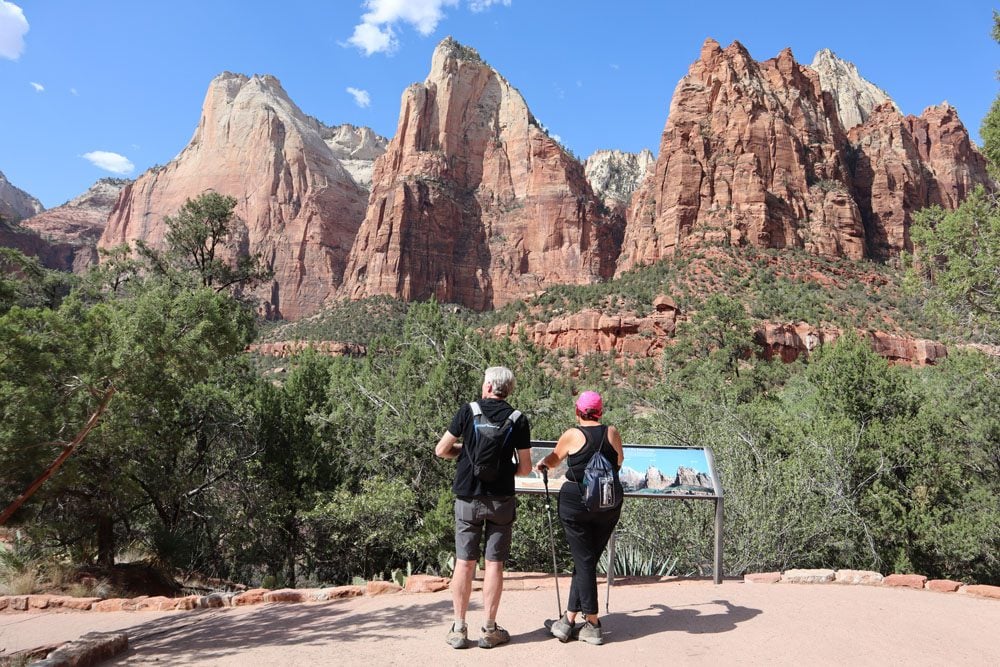
Zion-Mount Carmel Highway
Take a scenic detour and head east high above the canyon floor. Driving on this scenic road requires purchasing a vehicle pass along with your park ticket. As you twist and turn above the canyon floor, pull over in designated spots to enjoy views of Zion Canyon and the Great Arch, still not entirely detached from its “mothership”. The highlight of this scenic drive is crossing the Zion-Mount Carmel Tunnel. The peculiar-looking Checkerboard Mesa and the East Rim trailhead are six miles east of the tunnel.
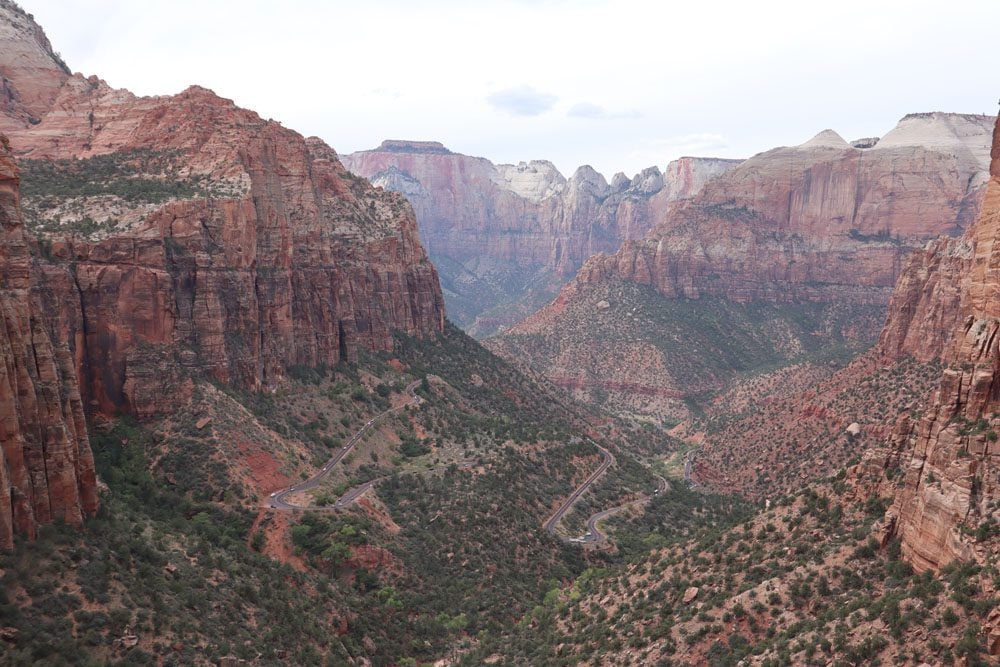
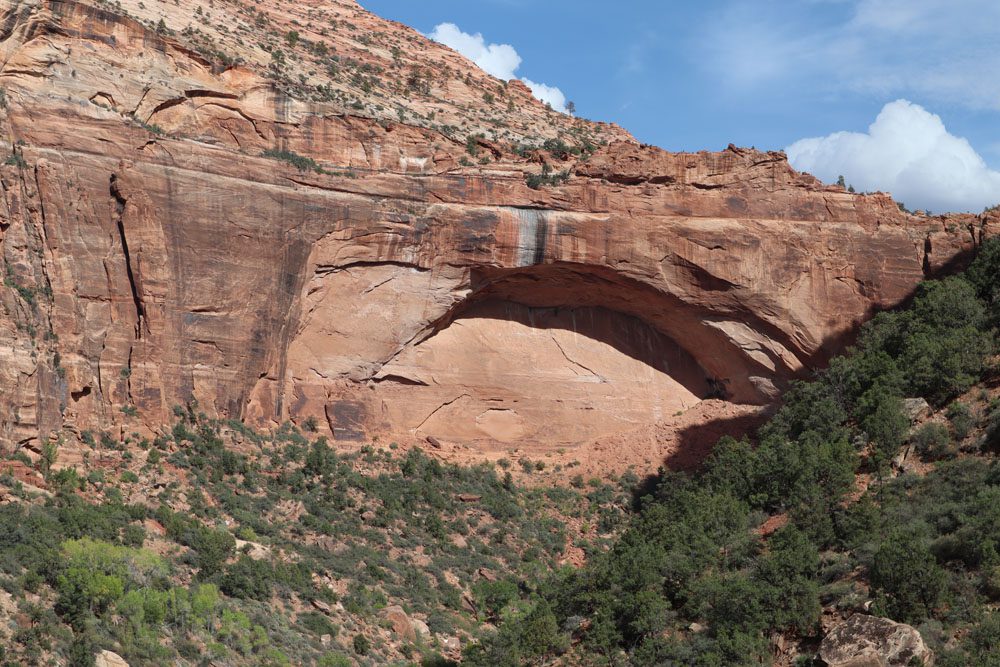
Zion-Mount Carmel Tunnel
You might have to wait for your turn to drive through the one-lane Zion-Mount Carmel Tunnel. This engineering marvel was the longest tunnel of its type when it opened in 1930. It’s remarkable to drive through and see how it was carved, leaving small openings in the rock for ventilation. Stopping inside the tunnel is prohibited.
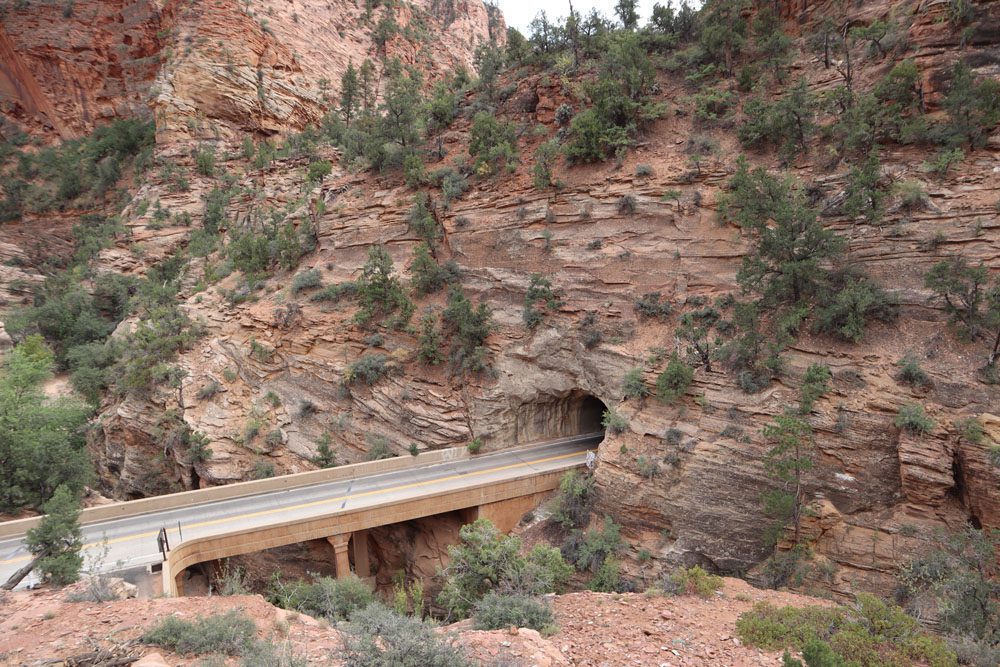
Canyon Overlook Trail
This short hike is one of the finest in Zion National Park, well worth the effort of driving up to its trailhead and overcoming the challenge of finding a suitable parking spot. Canyon Overlook Trail packs many exciting features into just a mile of hiking (return). The trail begins with great views of the tunnel entrance before winding its way along a creek rich in pine and juniper trees.
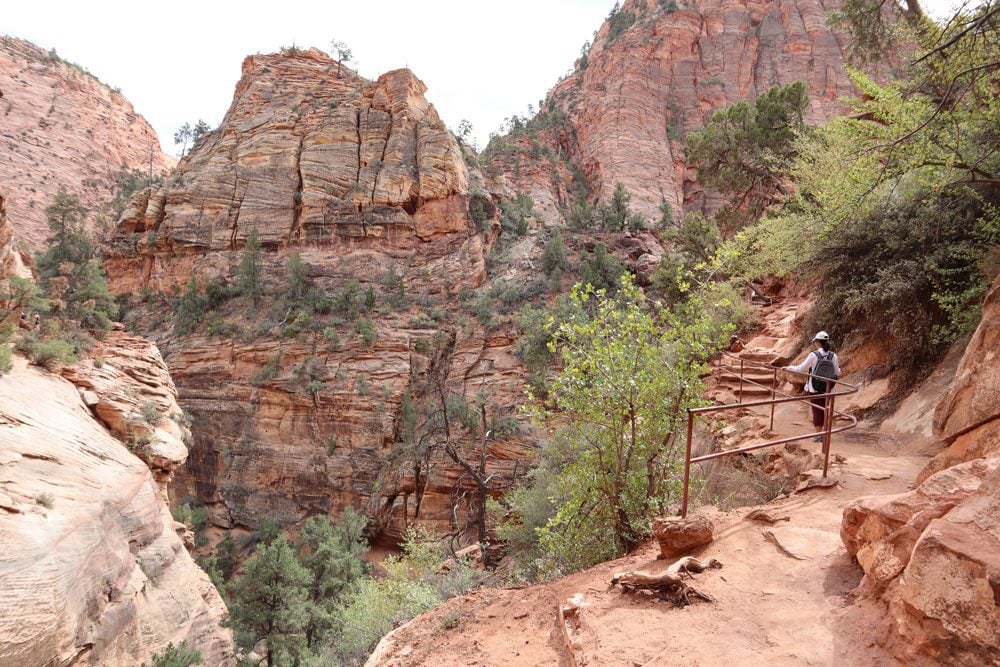
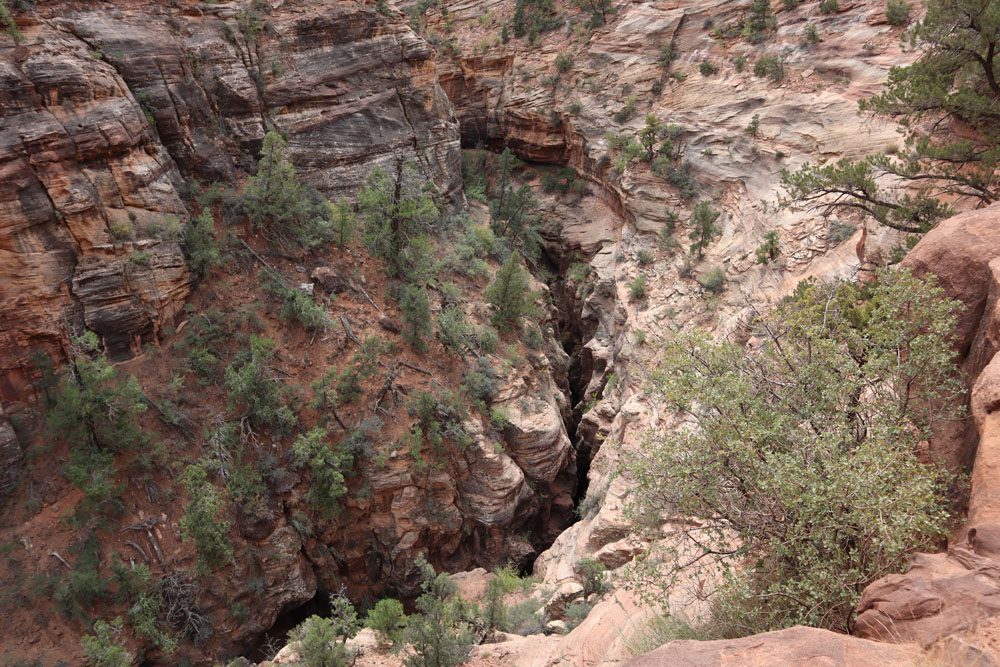
The eroded sandstone in this dry section of the park created many interesting highlights, such as arches, caves that you need to pass through, and jagged pinnacles.
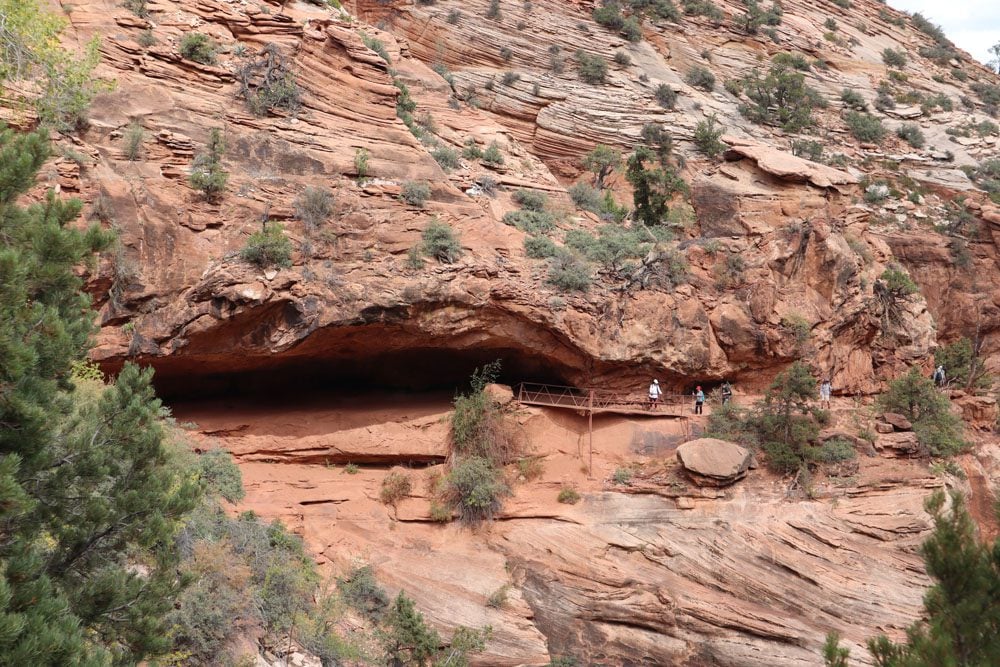
The trail ends at a spectacular overlook 1,000 feet above the Zion Canyon floor. The breathtaking views don’t seem to excite the local chipmunks who go after every snack pulled out of the bag. To your left, you can see one of the openings in the tunnel. But the real highlight is dead ahead, with the scenic highway in the foreground of some of the canyon’s most iconic peaks, such as the West Temple (7,810 feet) and the Sentinel (7,157 feet).
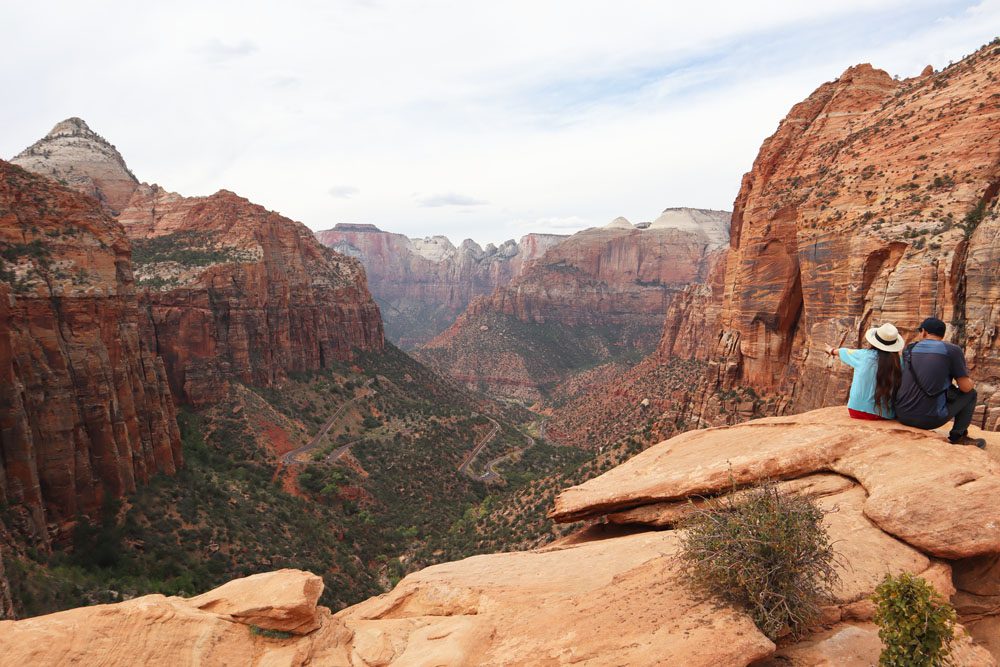
(1) The trailhead is right next to the tunnel exit if coming from Zion Canyon. There’s a tiny parking lot that’s likely full so keep driving and find roadside parking. If coming from the east, don’t take your chances and grab the first roadside spot before reaching the tunnel. (2) Canyon Overlook is one of the best places to watch the sunrise in Zion National Park.
Zion Human History Museum
A small museum highlighting Zion’s human history. This can be a worthwhile stop if you’re interested in learning about the area’s Native American and pioneer history and taking a break from the rain or the heat.
Watchman Trail
The starting point for the Watchman Trail is next to the visitor center. Within a short distance, the trail ascends via a series of switchbacks from the lush world of the riverbank to the dry desert landscape above the canyon floor. Finally, the trail ends in yet another spectacular lookout above Zion Canyon. It is not as dramatic as the Canyon Overlook’s climax but certainly well worth the effort especially considering its proximity to the park’s entrance.
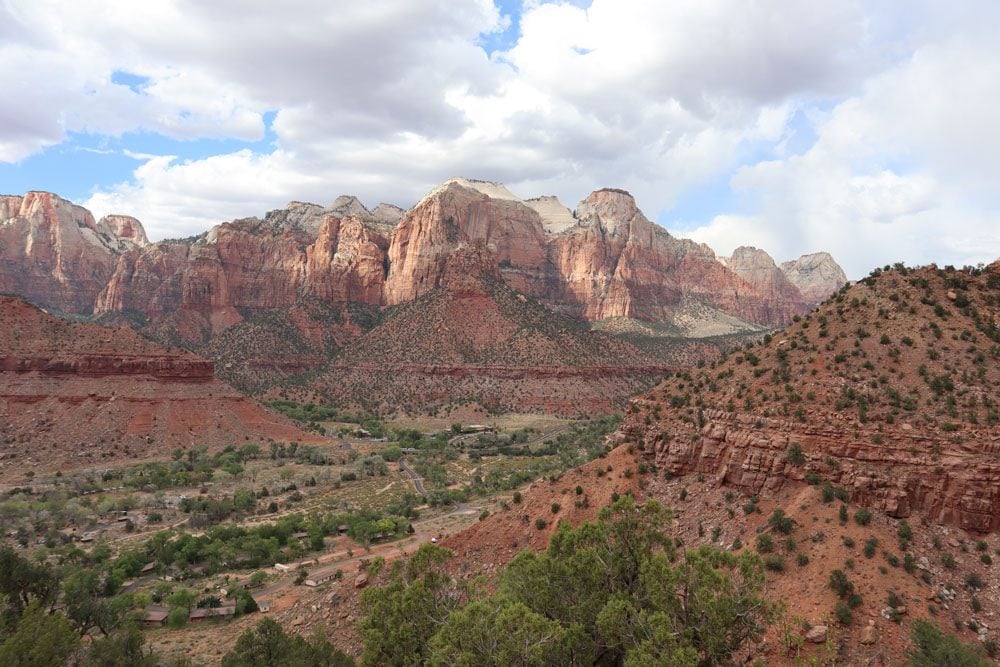
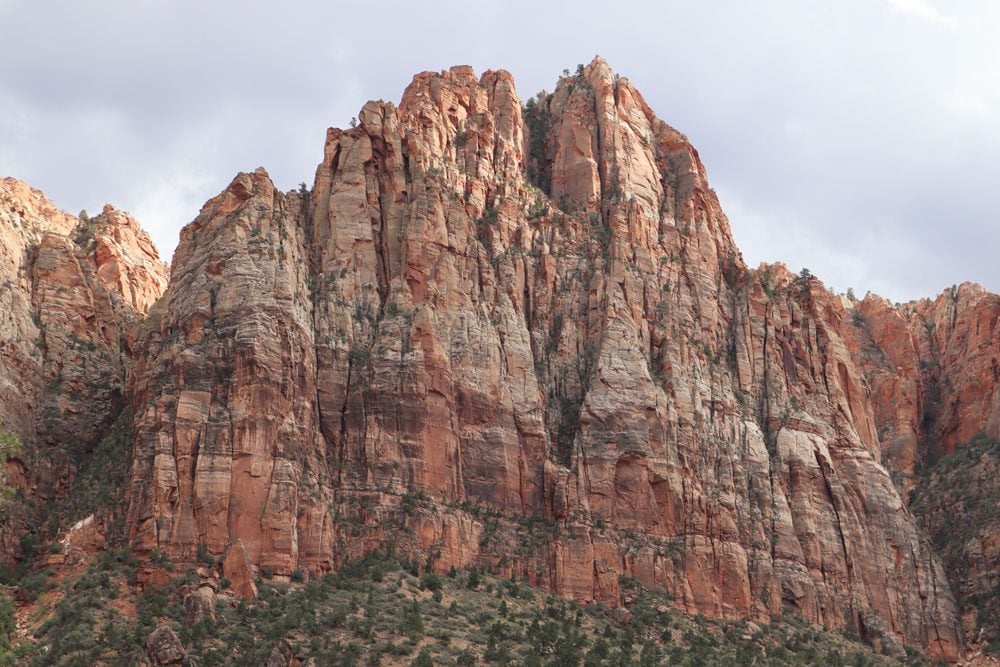
Horseback Riding in Zion Canyon
Fancy experiencing Zion Canyon on horseback? One or three-hour trips are available, departing from close to Zion Lodge.
Kolob Terrace Road
If you have the time or cannot stand the crowds at Zion Canyon, take the scenic Kolob Terrace Road and explore Zion’s backcountry. The paved road ends at Kolob Reservoir, and along the way, you’ll have plenty of opportunities to enjoy the views and hike privately. I especially enjoyed staring at the beautifully eroded sandstone hills and watching the changing colors of aspen trees in early October. However, the highlight of this Utah road trip was the view from Lava Point. Sitting at the edge of the Colorado Plateau, the upper rim of Zion Canyon can be seen far in the distance.
This area is higher in elevation than Zion Canyon, so the temperature can be much colder than what you’ve experienced on previous days. Pack accordingly.
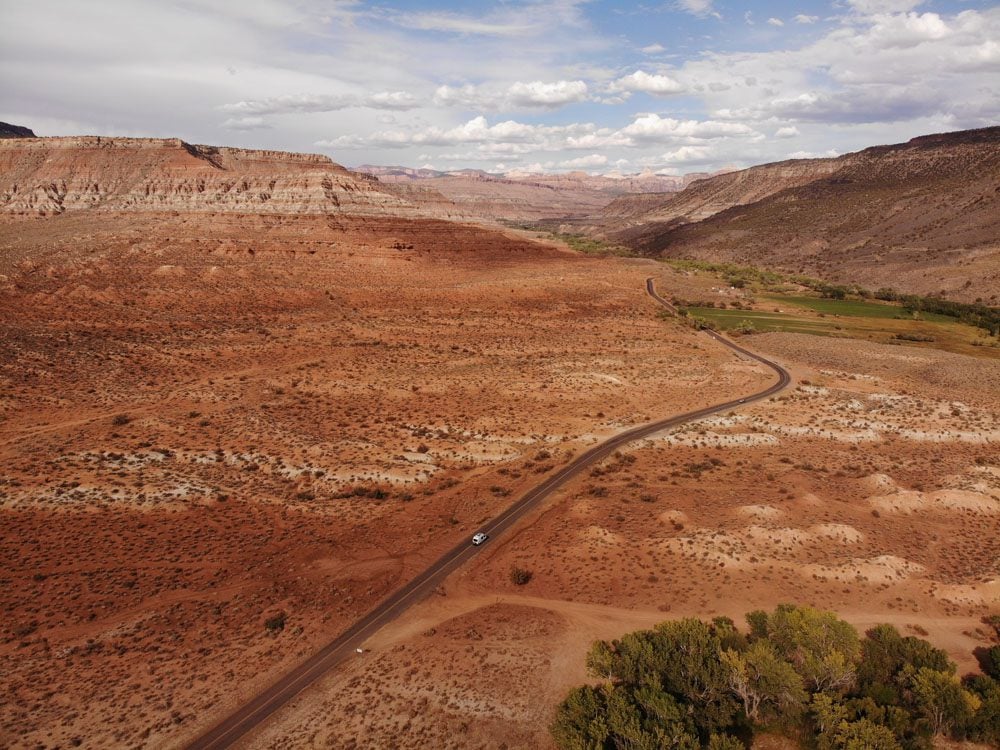
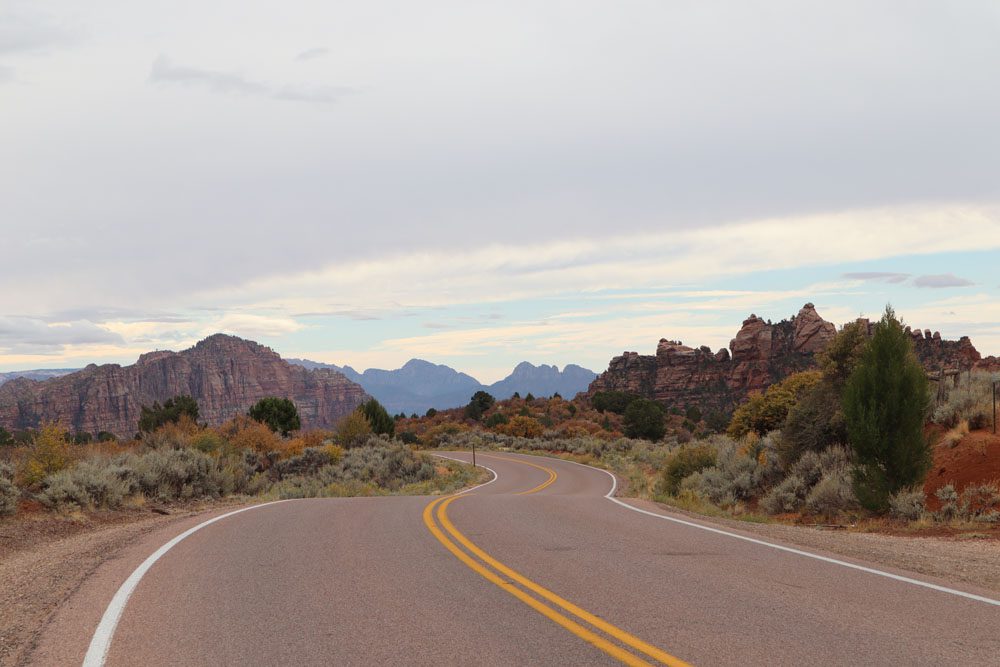
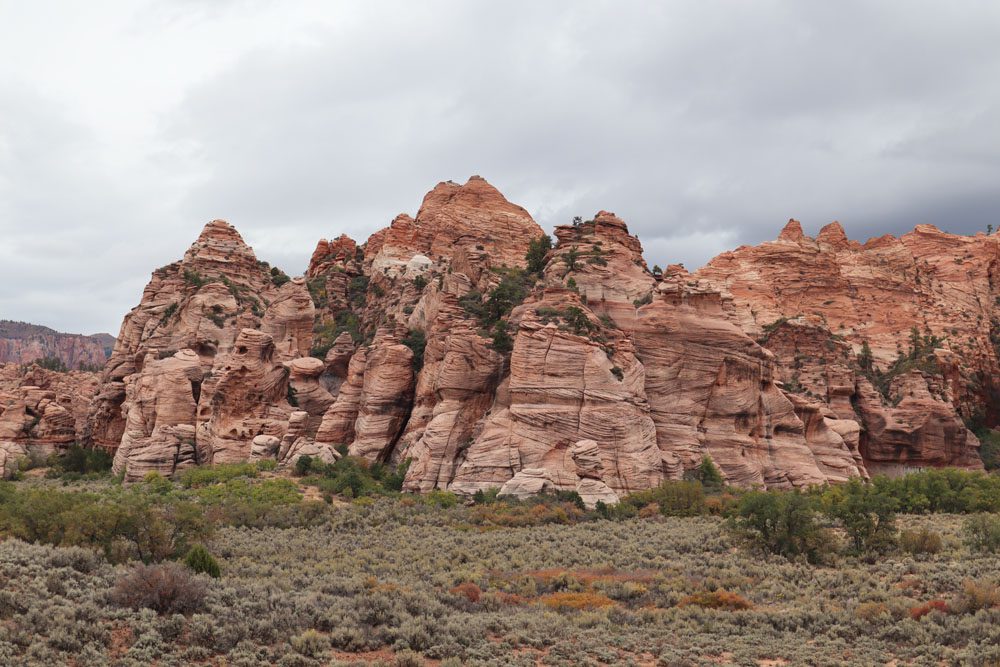
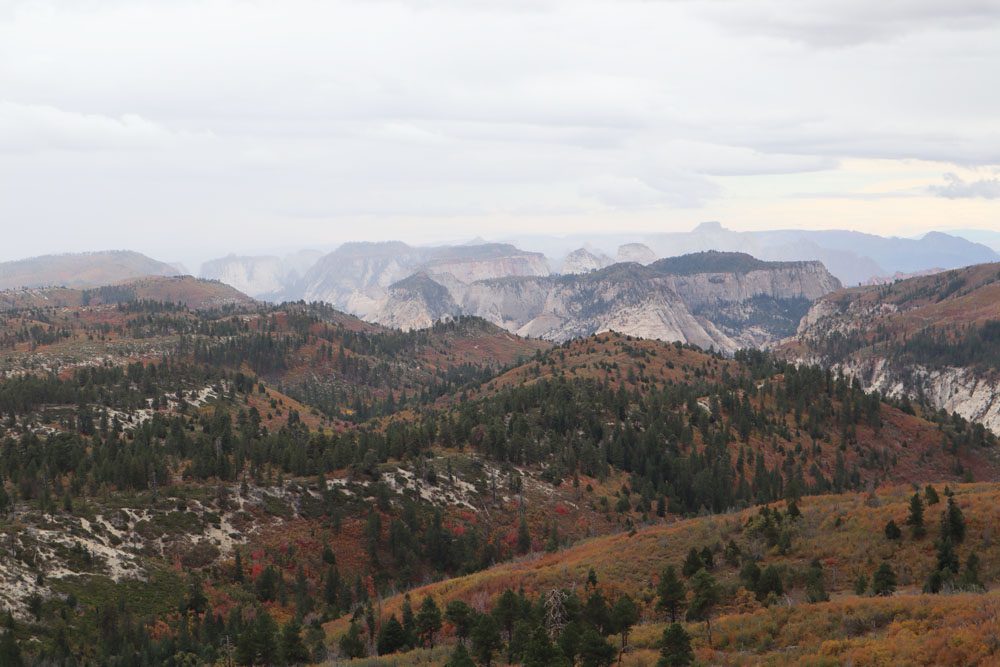
Kolob Canyons
A sort of an “annex” to Zion National Park, few visitors head to Kolob Canyons. Accessed via Interstate 15, Kolob Canyons offers hiking and camping opportunities and a very short scenic drive to Kolob Canyons Viewpoint. The red-colored canyons are not as dramatic as Zion Canyon, but the lack of crowds is a big plus.
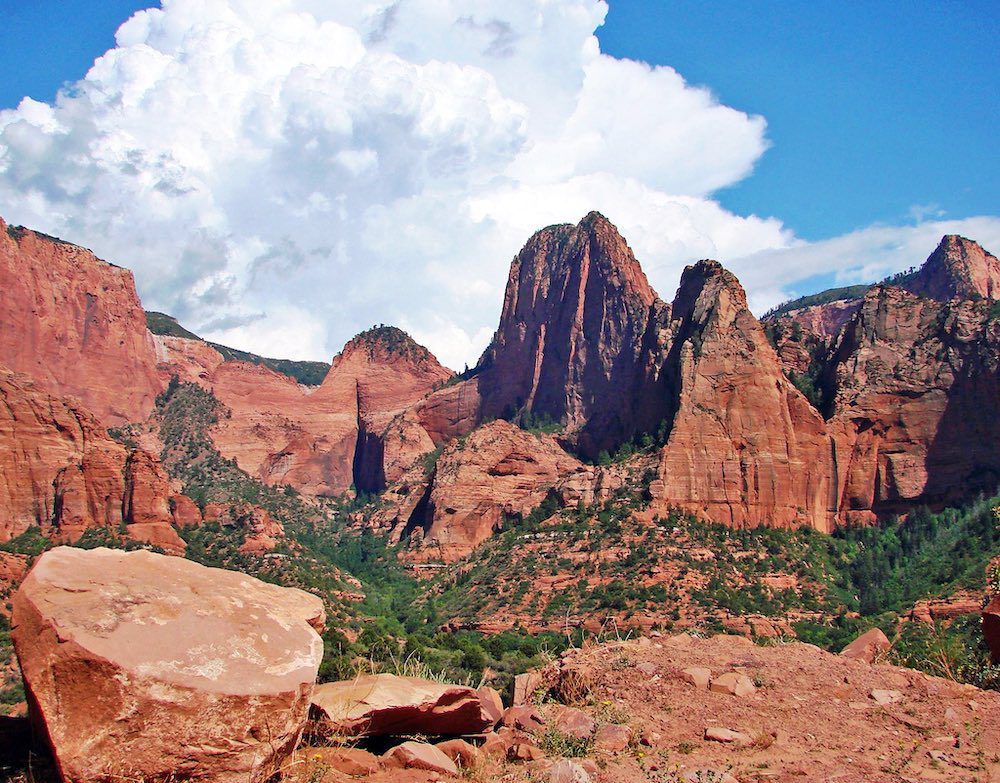
What’s Next?
With the information in this Zion National Park travel guide, you’re now ready to begin planning your adventure. Check out the Zion National Park travel guide collection for more information about Zion, including sample itineraries and the best hikes. If you’re visiting additional parks in Utah, more resources are available.
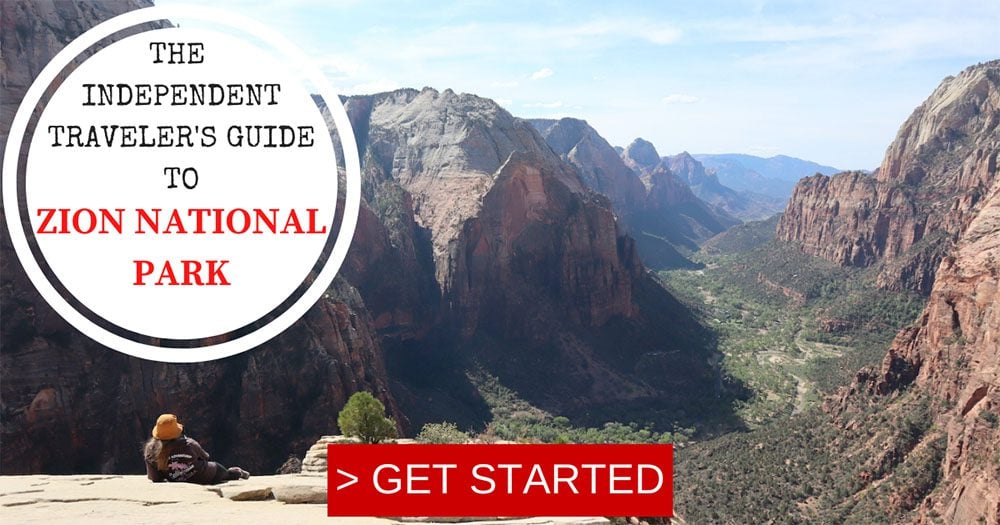
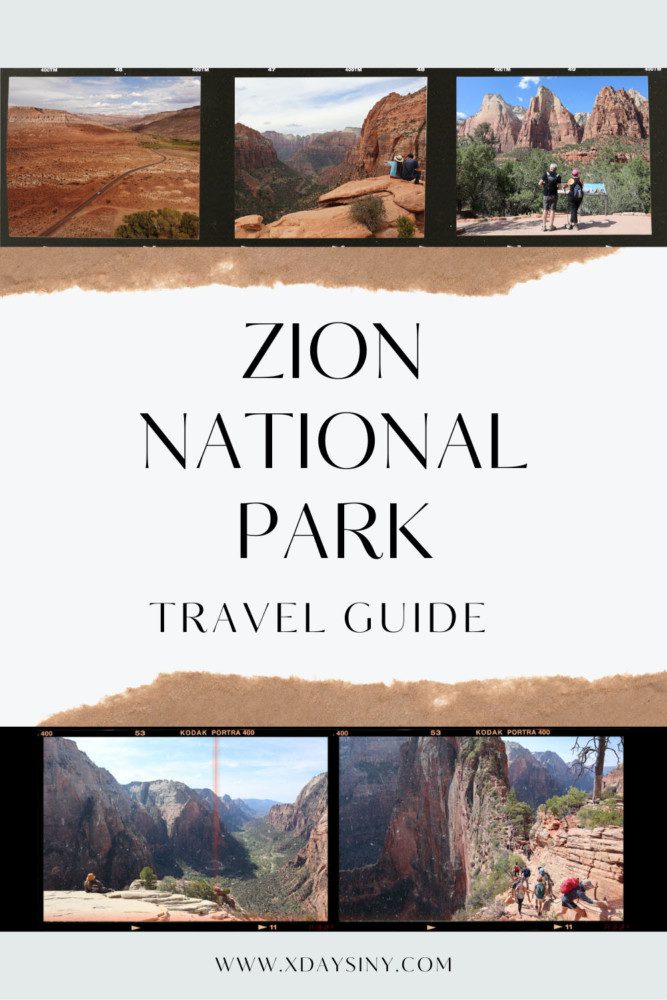
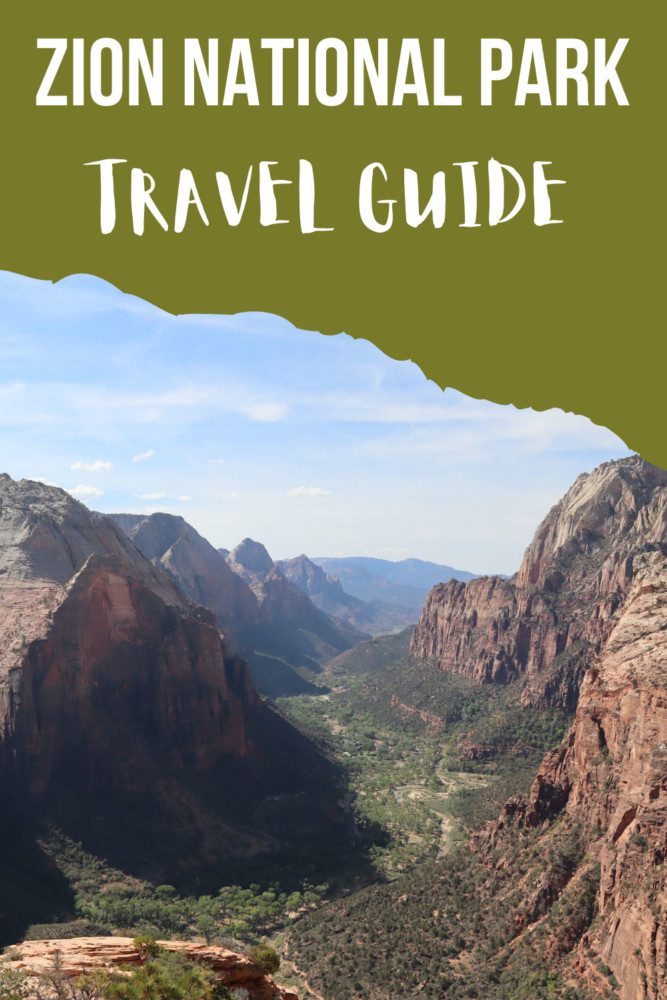
Pin These Images To Your Favorite Boards
